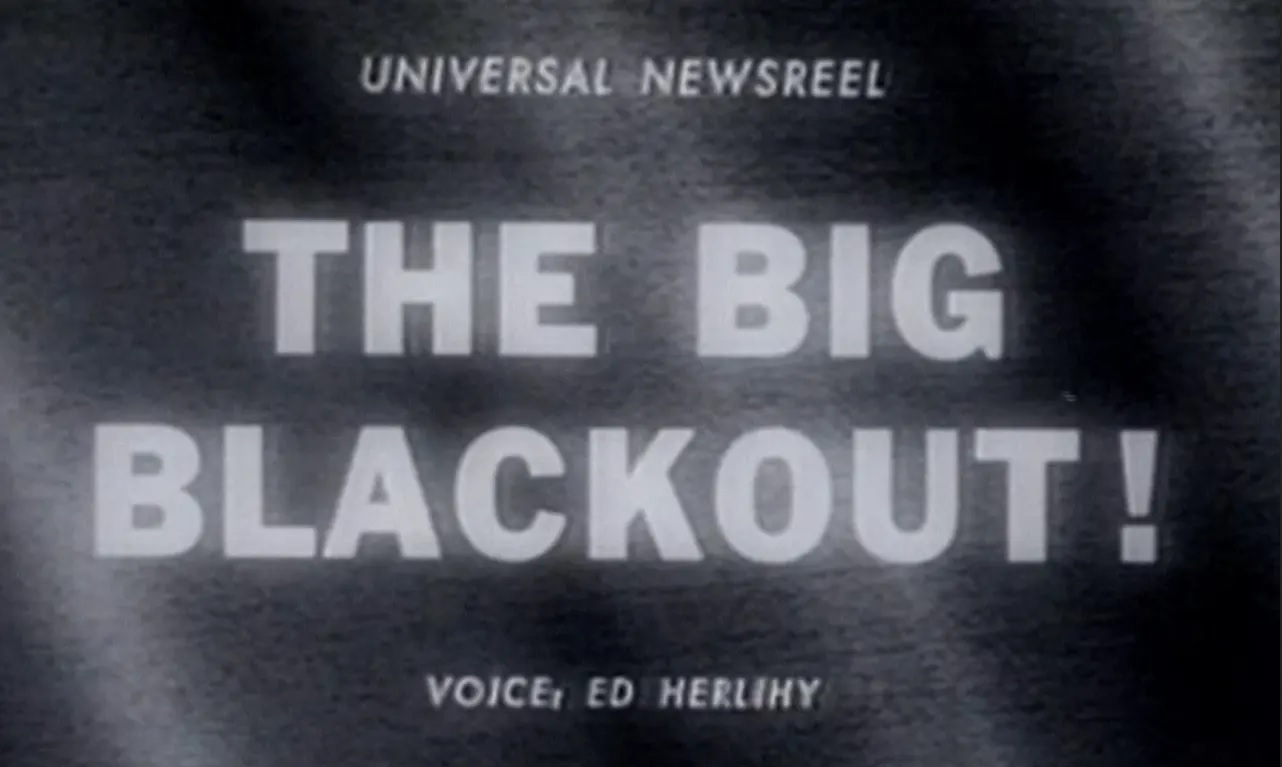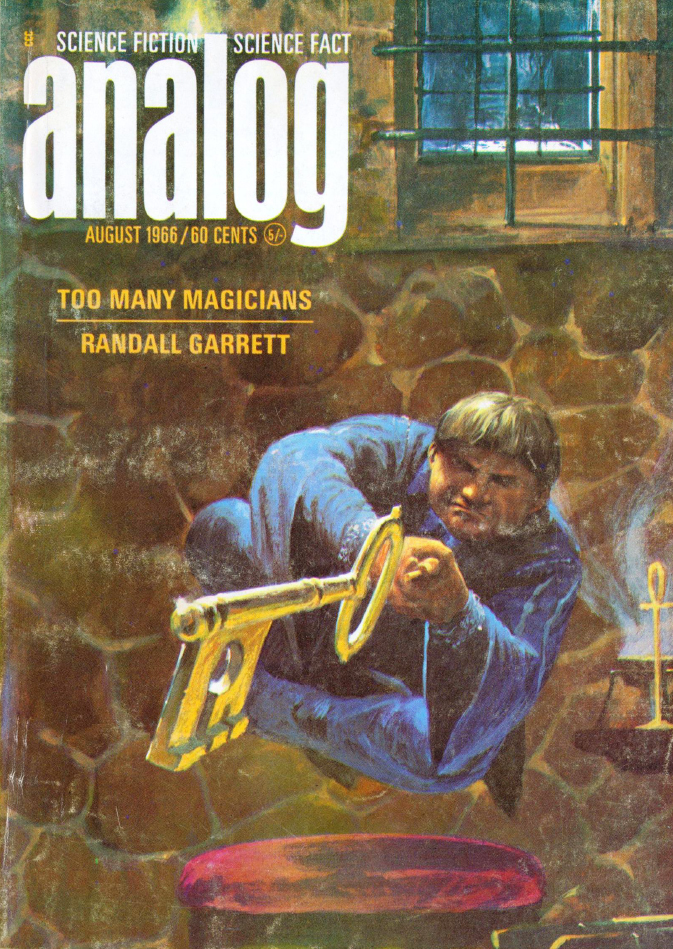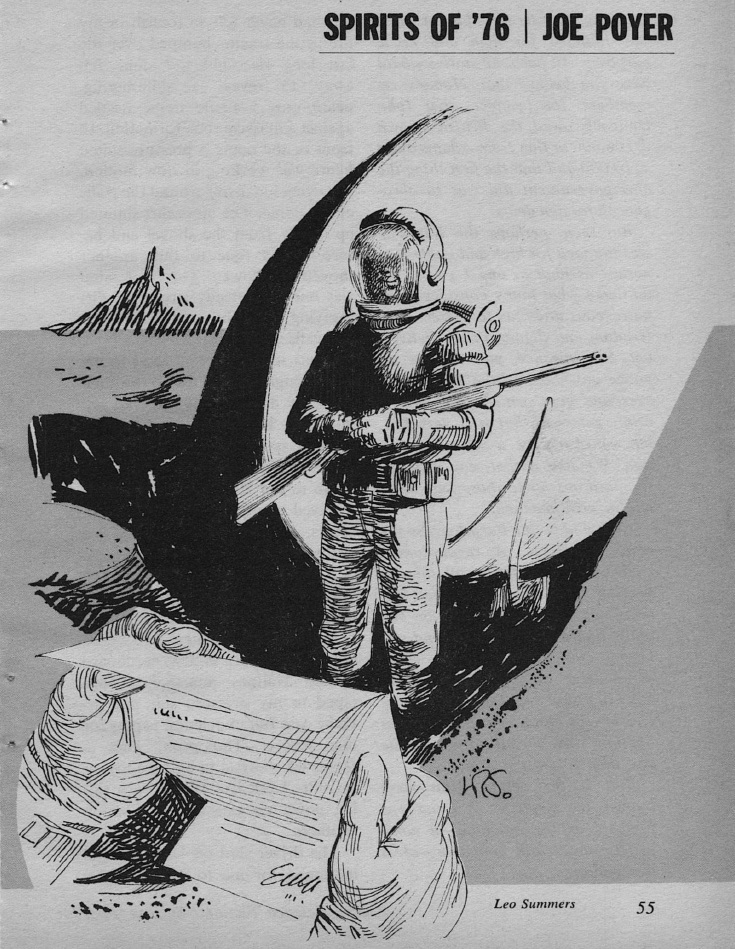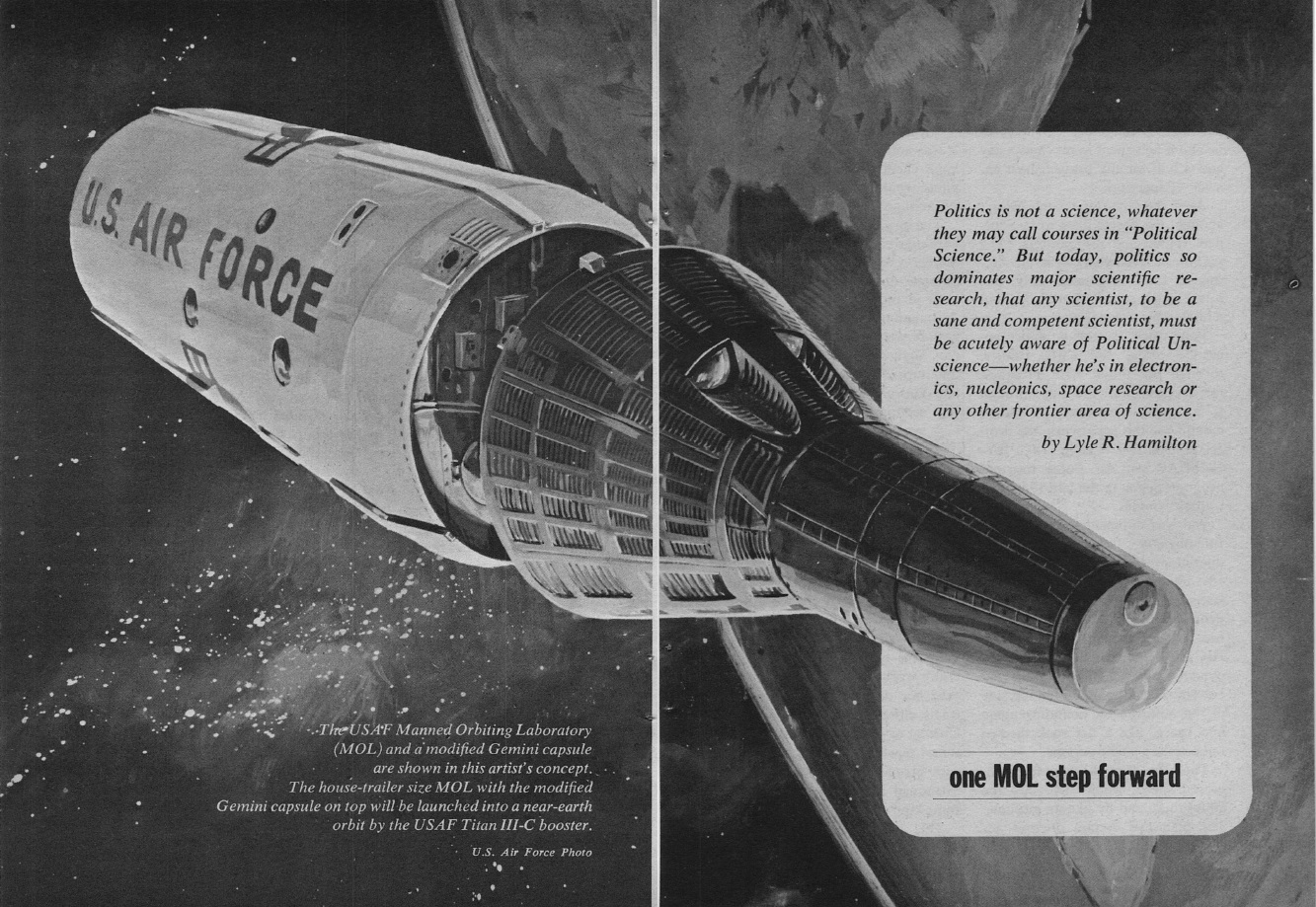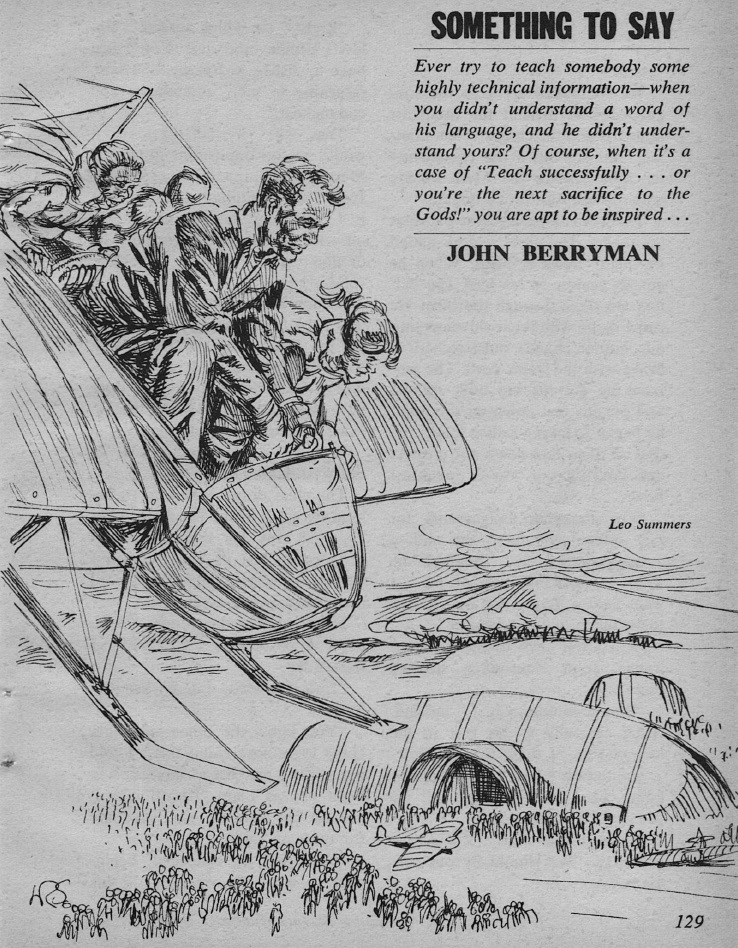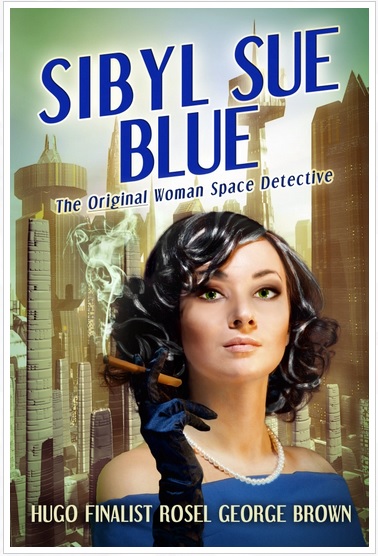
by Victoria Silverwolf
State of Confusion
Two new science fiction novels feature protagonists who get into big trouble without understanding things until the end. They don't know who's fighting them or who's helping them, or why. One book comes from the pen (or typewriter) of a relatively new voice in SF, the other from an old pro.
The Rim-World Legacy, by F. A. Javor

Cover art by Paul Lehr.
F. A. Javor has published about half a dozen stories here and there, sometimes using the first name Frank instead of the initial. My fellow Galactic Journeyers have not been greatly impressed by his work. He's never scored higher than three stars, and sometimes earns two or one. That's not promising, but let's keep an open mind as we take a look at his first novel.
The book starts with the narrator running from an angry mob. He hides himself in a swamp by breathing through a reed. A flashback tells us how he got in this mess.
Our hero is a professional photographer down on his luck. He gets an assignment from a mysterious woman. It seems easy enough; just take pictures of her husband, a magician, performing his act.
Things start to go bad when it turns out that his camera has been rigged to kill the magician. As luck would have it, the assassination attempt fails. Our hero isn't out of the woods yet, however. Somebody takes a shot at him, barely missing.
On the run from the cops as well as the bad guys, the photographer tries to stay alive while figuring out what the whole thing is about. Along the way, a guy he never saw before offers him a bunch of money for information about the boy. The narrator doesn't have a clue what the fellow is talking about. It all has something to do with an incredibly valuable item.
You'll notice that the above synopsis doesn't contain any speculative elements. That's because this is a crime novel disguised as science fiction.
It takes place on a planet at the edge of the galaxy. (Hence the title.) The camera is rigged with a laser. The hero almost gets killed by a ray gun that leaves him with intermittent muscular and neurological effects. The thing that everybody is trying to get ahold of isn't the Maltese Falcon, but a matter duplicator/teleportation gizmo.
As a suspense novel, this is a decent if undistinguished example. The plot moves quickly, with plenty of twists and turns. As science fiction, it's so-so. I'll give the author a few points for considering the social, economic, and philosophical implications of the device that serves as the book's MacGuffin. Worth killing a few hours with, but forgettable.
Three stars.
Bright New Universe, by Jack Williamson

Cover art by John Schoenherr.
Veteran author Jack Williamson hardly needs an introduction to SF fans. Suffice to say that he's been going strong for forty years, and shows no signs of slowing up.
His latest novel takes place in the fairly near future. There's a thriving colony on the Moon, but no mention (unless I missed it) of the rest of the solar system, and certainly not of interstellar travel.
The protagonist breaks off his engagement with his fiancée, instead choosing to take part in a long-term project on the Moon. This upsets the young woman, of course, but it also distresses the hero's family and acquaintances.
He's willing to turn his back on everyone he cares for in order to pursue a dream. A lunar facility is searching for messages from aliens. Our hero believes that contact with extraterrestrials would benefit humanity to an almost unimaginable degree. As a secondary motive, his father, who died before he was born, was killed in an accident on the Moon, and he wants to find out what happened.
His stepfather argues with the protagonist, believing that progress is inherently bad. This scene serves as the philosophical heart of the novel. The stepfather points out the many dystopian works warning against the advance of technology. He argues that an alien species would lead the human race into this kind of dark future.
The book's title appears to be an allusion to Aldous Huxley's famous novel Brave New World, and Huxley is specifically mentioned in the text. Bright New Universe is the antithesis of that work. The hero believes that progress is good, and Williamson is obviously on his side.
(An in-joke appears at this point. Among other books depicting technology as a threat, the stepfather mentions This odd old book about the perfect machines, the humanoids, smothering men with too much perfection. This is obviously a reference to Williamson's own novel The Humanoids.)
On the Moon, the protagonist meets an alluring Eurasian woman. Unfortunately, her mission is to shut down the project as a waste of resources. She is much more than she seems to be, however, and we'll see a lot of her, in different roles, throughout the book.
Complications ensue when the hero finds out what really happened to his father, and winds up accused of murder. Back on Earth, he discovers a secret organization dedicated to fighting off aliens. (This group also happens to be extremely racist. Williamson is stacking the cards a bit here, making the xenophobes completely evil. I suppose the point is to compare two different kinds of prejudice.)
It's probably not giving too much away to reveal that highly advanced aliens have, indeed, been in contact with Earth. The protagonist's struggle to find out why this fact has been kept hidden leads up to a climactic confrontation between the xenophobes and the extraterrestrials.
The author depicts the two sides in this argument for and against progress in black and white, with no shades of gray. The aliens are completely benevolent, their opponents absolutely in the wrong. Although this renders the book's theme somewhat superficial, it's definitely worth reading. In addition to an action/adventure plot, you've got some very interesting aliens, and an enjoyably optimistic view of the future.
Three and one-half stars.

by Mx. Kris Vyas-Myall
The Kill[er\ing] Thing, by Kate Wilhelm
Just to explain the odd title, in the US Doubleday published this as The Killer Thing. However, my UK edition, from Herbert Jenkins SF, changed the title slightly to The Killing Thing. I am guessing they believed it was moderately more grammatically correct, although to my ear both are just as odd phrasing. I suppose the phrase “The Killing Machine” sounds slightly better than "The Killer Robot" but if they were that concerned should they not have called it The Thing That Kills?
All clear as mud? Good, good.
Kate Wilhelm is an author I have enjoyed via her short fiction but have yet to be impressed by her novels. The Clone read as an unnecessary expansion of Thomas’ excellent short and, whilst my incredibly smart colleague Victoria Silverwolf gave it 4 stars, The Nevermore Affair’s description sounded exactly the kind of book I do not enjoy and so I am yet to pick that one up.
But will her third foray into full length works be a marked improvement?

From the beginning there is definitely a sense of strangeness and unknowability to the whole enterprise, giving you more the sense of Moorcock’s New Worlds then Lalli’s Fantastic & Amazing (which formerly published a number of her pieces). We are immediately thrown into the fight against the titular robotic “Thing”, but it is not setup as an action-filled running commentary, but instead concentrating on lush imagery and the thoughts and reactions of those encountering it.
Within the text, I cannot help but read this as an anti-war novel. By this I do not mean the absurdist comedies of recent years, such as Bill The Galactic Hero or Catch-22, but more of a traditional serious piece like Wells’ The War in the Air or All Quiet on The Western Front. Whilst people seem willing to write about the potential horrors of the atom bomb, authors since World War 2 have seemed to shy away from criticizing conventional warfare. I cannot help but think this is due to current attitudes about it. Most new war films seem to portray the whole experience as a jolly jape of fine upstanding fellows and, in spite of some protests, polls still show a majority of the American public support the current US involvement in Vietnam. I feel the general view is summed up by Ian Chesterton in Doctor Who:
Pacifism only works when everybody feels the same
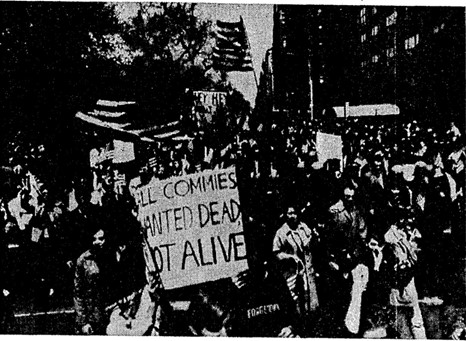
Therefore, it is a pleasant surprise to see a work that is so clearly pacifist. Whether it is in the clever title, the horror of the action, the horrified responses to what they are seeing or the brutal statements of the generals, e.g.:
You have to take lands with your blood, yours and theirs, mixing together in the dirt so that in the ages to come you can’t tell whose blood it is that nourishes the trees and grasses. Then you know it’s your world, Colonel, and not until then.
As a member of the Society of Friends, pacifism is part of my beliefs and understanding of the universe. Given how rare it is to see displayed in fiction (although Dickson did a very good anti-war novel a few years back), I found it warming to read.
However, more there is a significant flaw I found, one that overrides my appreciation for the whole work, that is in the style. It unfortunately engages in one of my biggest pet peeves, that of over-description. Where we will get one line of action or dialogue and then nothing but description for ages, on a loop. For example:
He turned to look about.
The carrier was on tracks that were six feet above ground level… [23 lines of description]…Their heads as well as their faces were clean shaven.
‘Nice isn’t it’ Duncan said, at Trace’s side.
He was tall as Trace, and a twenty-three, three years younger. Both were second lieutenants. His black eyes were shining with the excitement of leave after four months’ running battle with the fleet dispatched by Mellic. ‘You have any plans for the duration?’ he asked.
They had come to a large shopping area, where stores were open to the warm, air and sunshine, and good were spread out to be seen and handled.
‘No,’ Trace said. ‘You?’
It creates a sense to me of a picture book with a complicated painted image and a tiny description without any feeling of motion.
As such, in spite of the ambition, I could not really love this particular thing.
Three stars (four for effort, two for execution)

by Jason Sacks
The Avengers Battle the Earth-Wrecker, by Otto Binder
No, this novel isn't an adaptation of the wonderful Avengers TV series starring Patrick MacNee and Diana Rigg as the eternally delightful John Steed and Emma Peel. Instead, it's an adaptation of those other Avengers, the Marvel super-hero team which features Captain America and his pals. (By the way, if you are looking for a good novelization of those British Avengers, I can recommend the book below. It's apparently written by MacNee himself!)
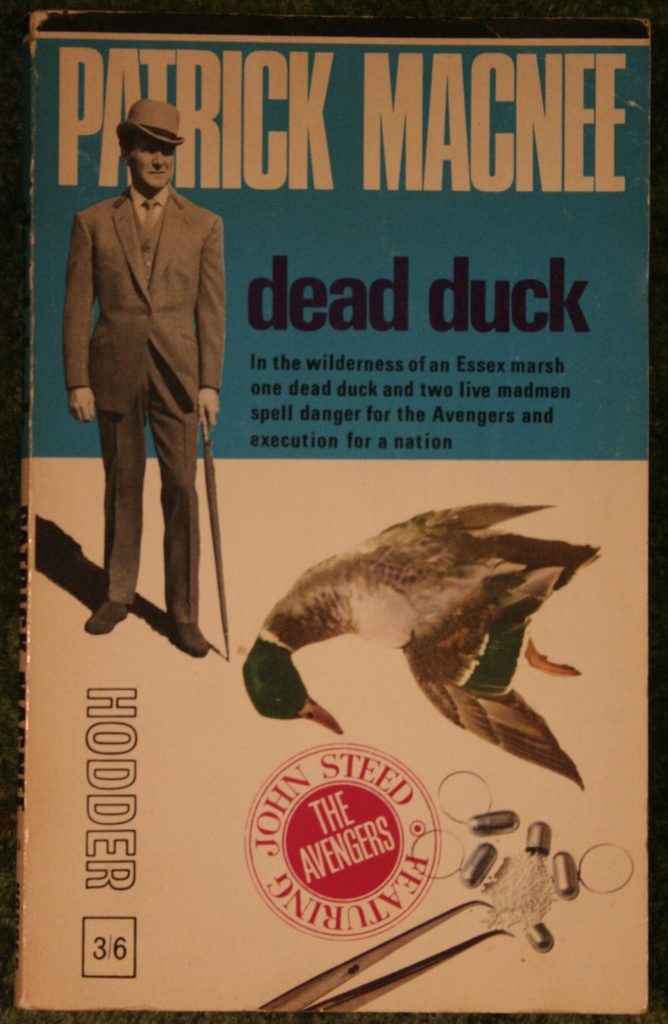
Written by longtime comics writer (and science fiction writer) Otto Binder, The Avengers Battle the Earth-Wrecker had much promise. After all, Binder has written hundreds of comic book stories, including classic work on Captain Marvel as well as long runs at both National and Marvel, plus he's logged time at nearly every comic book company over the last 25 years. Beyond that, Binder has published dozens of prose novels, some under his own name and some under pseudonyms. Most of those books have been quick, fast reads.
Thus, with Binder at the helm, this book seemed like a big win for every Marvelite.
Sadly, though, Earth-Wrecker is pretty dire work. The book begins slowly and never improves from there, delivering a dull, sometimes campy work. This story likely would have been rejected by Stan Lee if it had been submitted for publication in the Avengers comic.
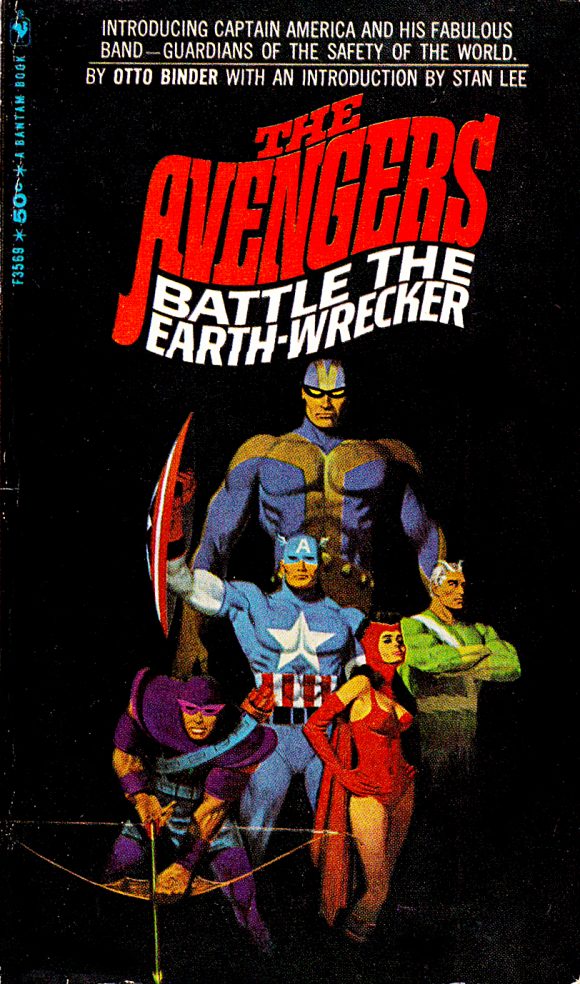
Earth-Wrecker begins as Captain America is leading a press conference to introduce his team of Avengers. The heroes quip and banter to the media in the most boring way (ten-foot tall Goliath complains about hitting his head, for instance) before the Avengers all agree to have a quick warmup battle for the media by playing their "Gladiator Games."
"Gladiator Games" seem like a combination of the X-Men's Danger Room and some arbitrary test of feats of strength. They also are something that never has appeared in any of the 43 issues of Avengers comics written by either Stan Lee or Roy Thomas. Mr. Binder obviously wanted the readers to get a sense of how the team bickers their way to victory, but the whole sequence falls completely flat. It's action for its own sake, without any consequences involved. Thus there's no reason for a reader to care about what they read.
And in fact, it falls even flatter as one of the Avengers suddenly realizes their teammate Iron Man isn't there with them and begins to wonder why that is the case. No member of the team thought they should try to get in contact with him or were keeping tabs on where Iron Man was. Maybe the team doesn't have telephones or telegraphs to stay in contact with each other?
Regardless, Binder's ramshackle plot has Iron Man flying over the Himalayas for some unknown reason when he's caught in a downdraft. That downdraft sucks our hero down towards Mt. Everest. Never mind that there's no explanation of how Iron Man can breathe in that thin Himalayan air, or even any good reason for the Armored Avenger to be there at all. No, the character just happens to be wandering through Asis so he can advance the novel's plot. And while at the roof of the world, Iron Man just happens to be attacked by a guy who wants to destroy the entire world.
That evil villain is called Karzz the Conqueror. He comes to our times from the 70th century. Karzzd has an extremely covoluted plan to conquer his future Earth by destroying it in the 20th century, and honestly his plans were so weird and complicated it gave me a headache to contemplate them. They verge on camp, on the sort of thing you can imagine the Riddler trying to do on the Batman TV series.
And that's on top of the fact that Marvel already have a a villain from the 70th century called Kang the Conqueror, who's been groomed for years to be the team's greatest enemy. Kang is fun, has a complicated backstory, and would have made comic readers smile. But no smiles are earned here. Nope: for no good reason, Binder decided to create an amazing facsimile of that real Avengers villain instead of having ol' blue-face appear in his novel.
Cynical me wants to say that's because Binder had never read an Avengers comic in his life, and was given a weekend to write this 120-page quickie. That complaint is certainly reflected in the book's pages. It may be why the book's plot seems to ramble and amble aimlessly, or why the Wasp is always described in the most sexist terms, or why Hawkeye is such a jerk, or why the ending seems so rushed and bland.
Oh heck, I could go on and complain more about this book, but perhaps I've said enough to persuade you to just give this one a pass. Roy Thomas and John Buscema are doing excellent comics in the monthly Avengers series (I'm very intrigued by the Red Guardian, an actual hero of sorts from the USSR!) So stick with that book and leave The Avengers Battle the Earth-Wrecker for some other sucker to pick up at your local Kresge's.
1 star (the cover is nice, anyway)

![[June 16, 1967] What's Going On Here? (June 1967 Galactoscope)](https://galacticjourney.org/wp-content/uploads/2022/06/670616covers-672x372.jpg)

![[May 31, 1967] Phoning it in (June 1967 <i>Analog</i>)](https://galacticjourney.org/wp-content/uploads/2022/05/670531cover-672x372.jpg)

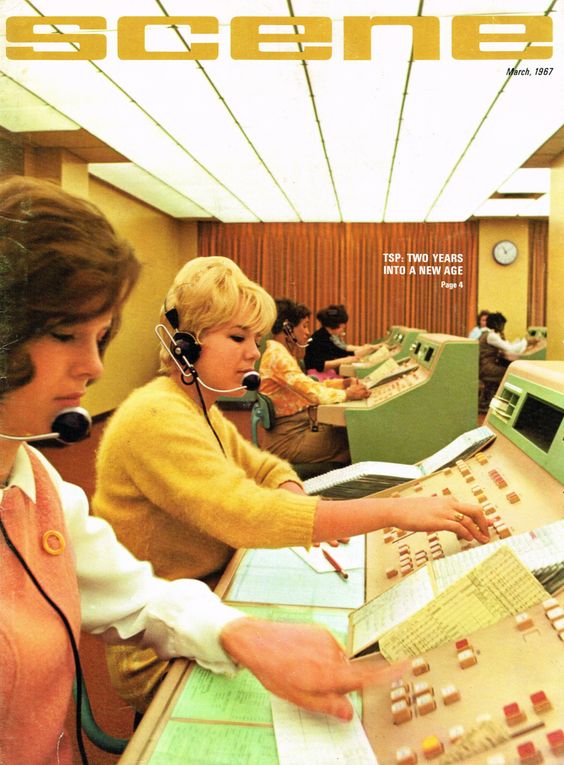
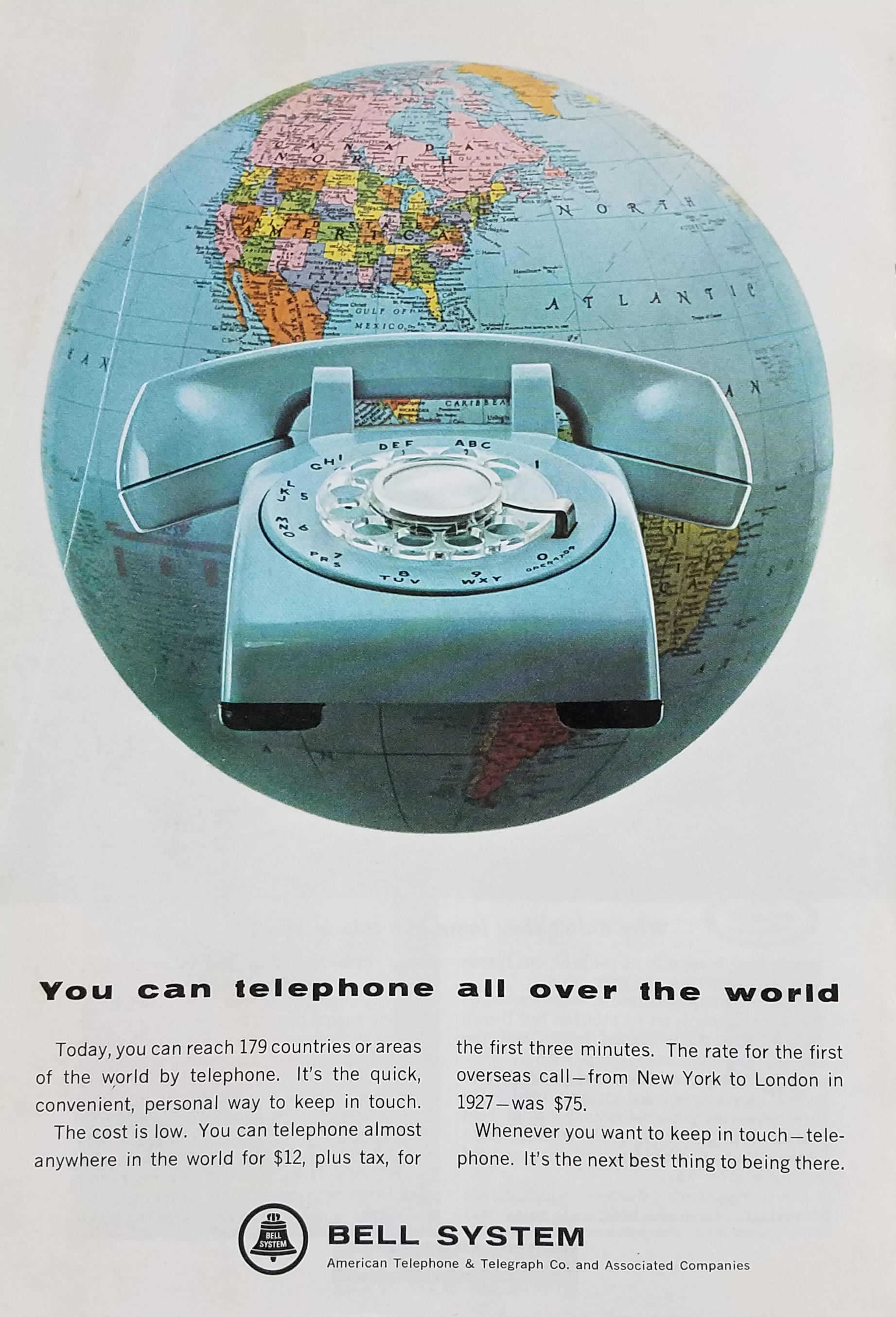
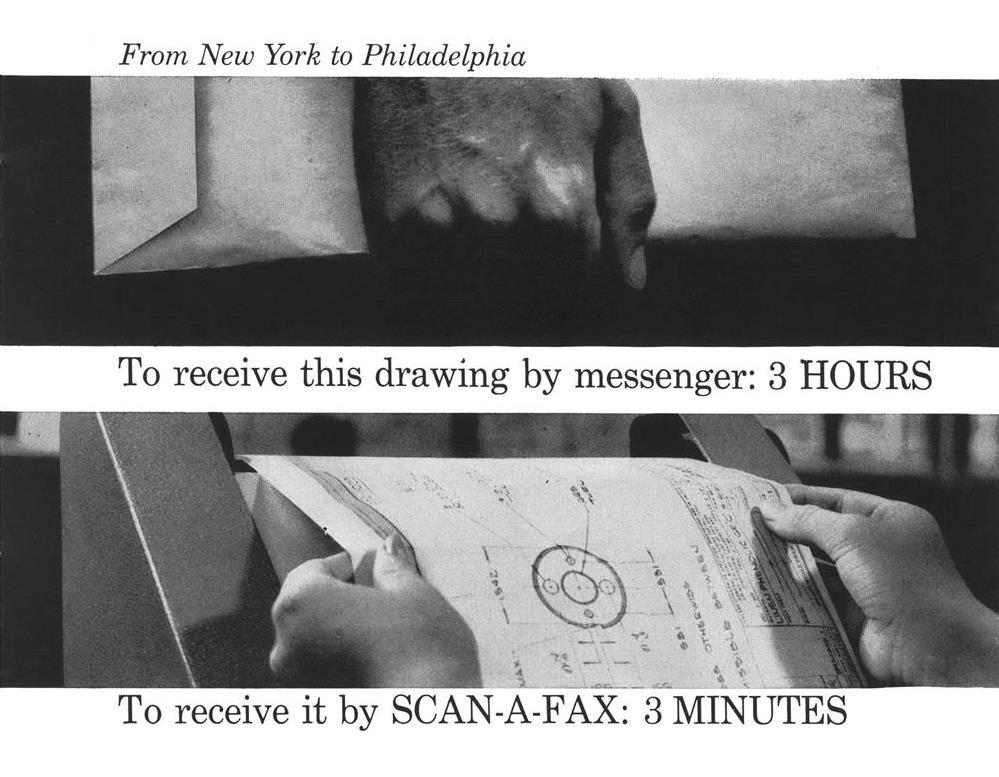






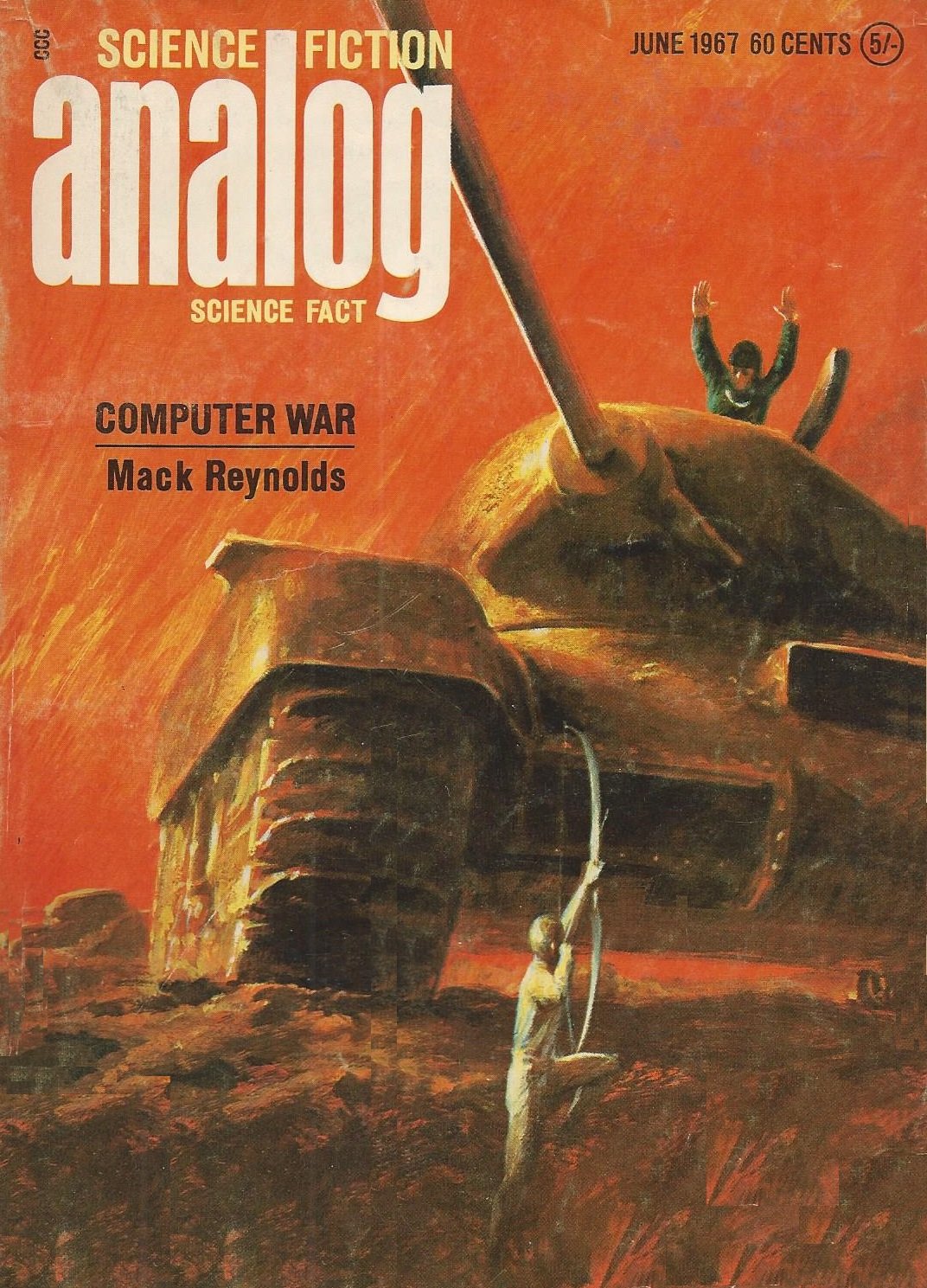
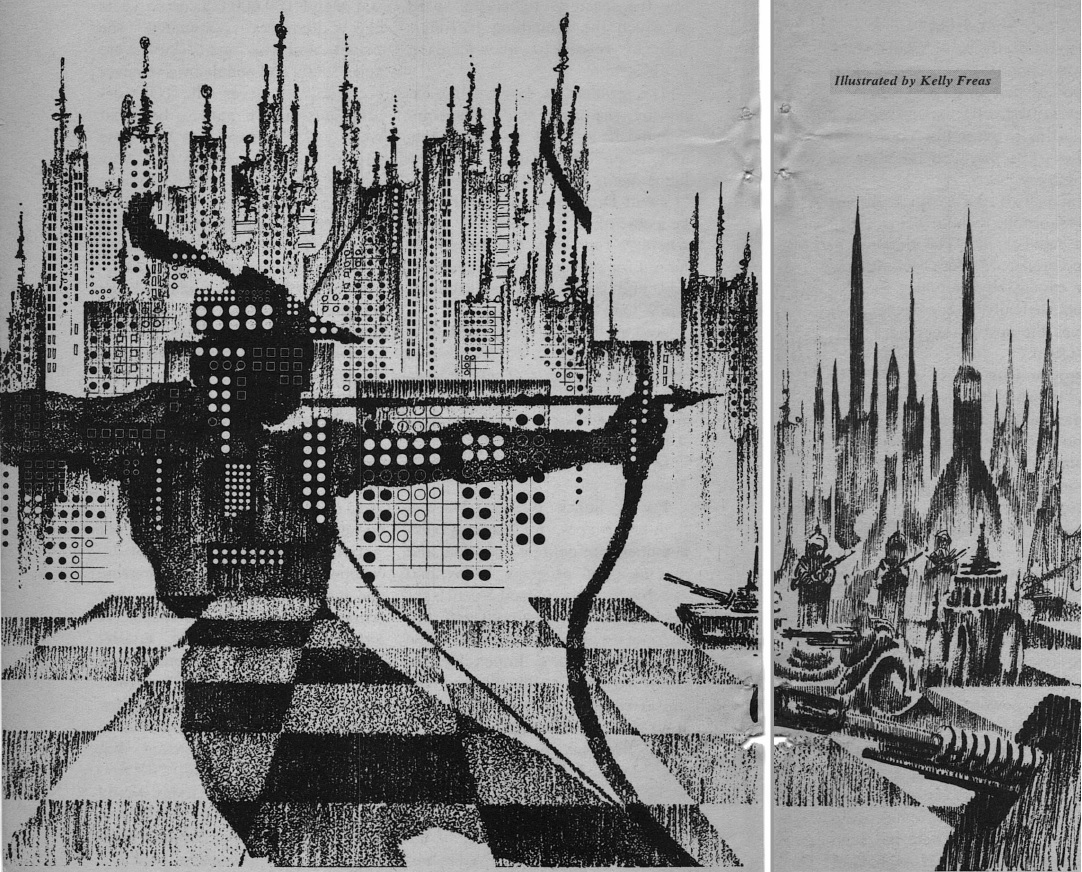
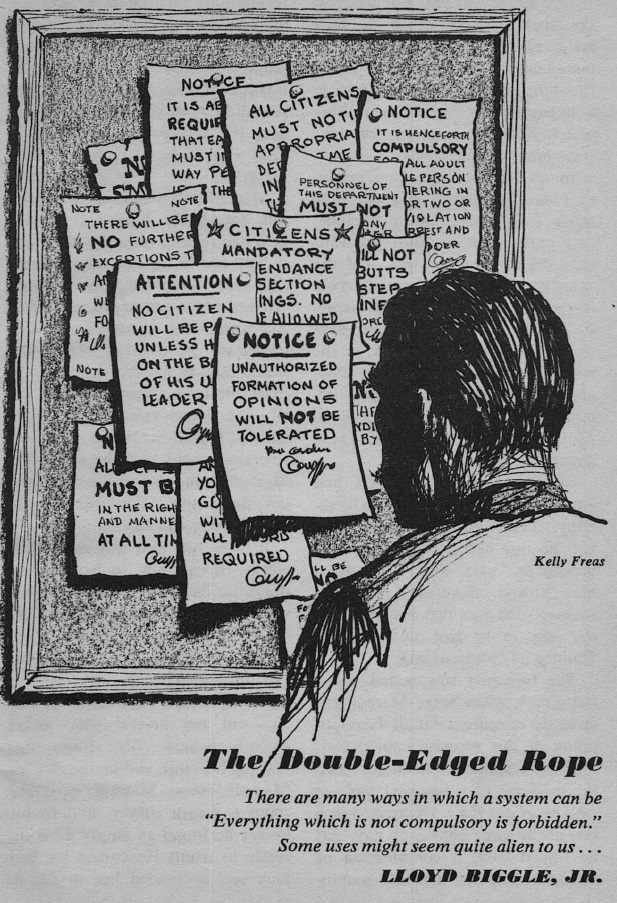

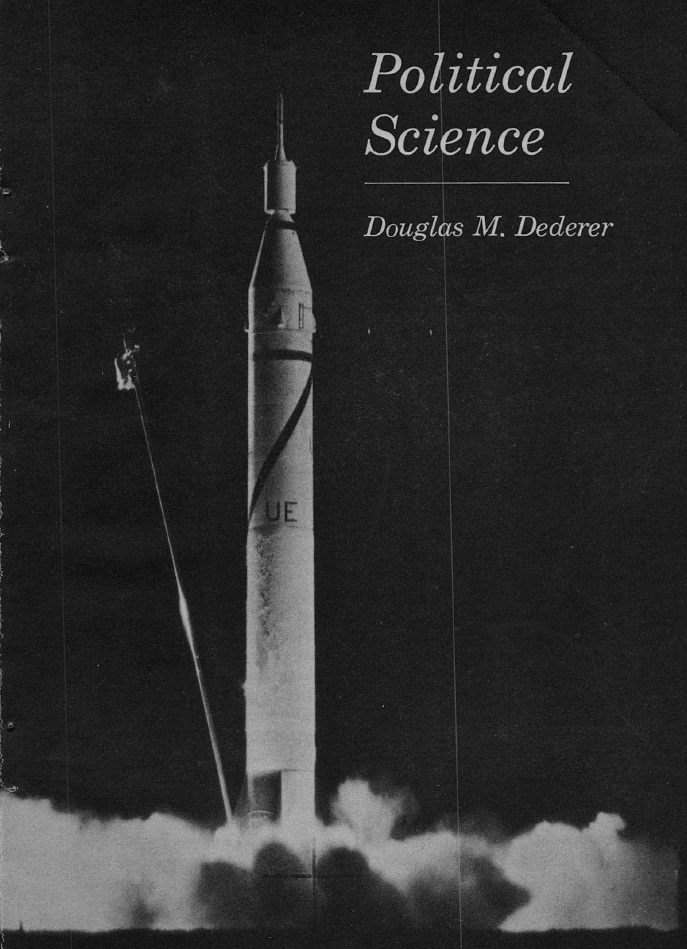
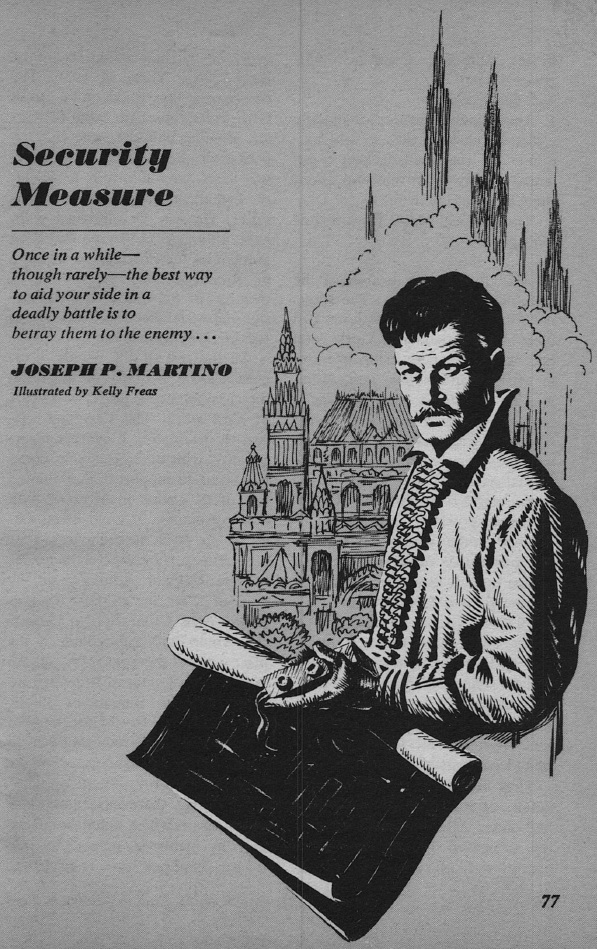

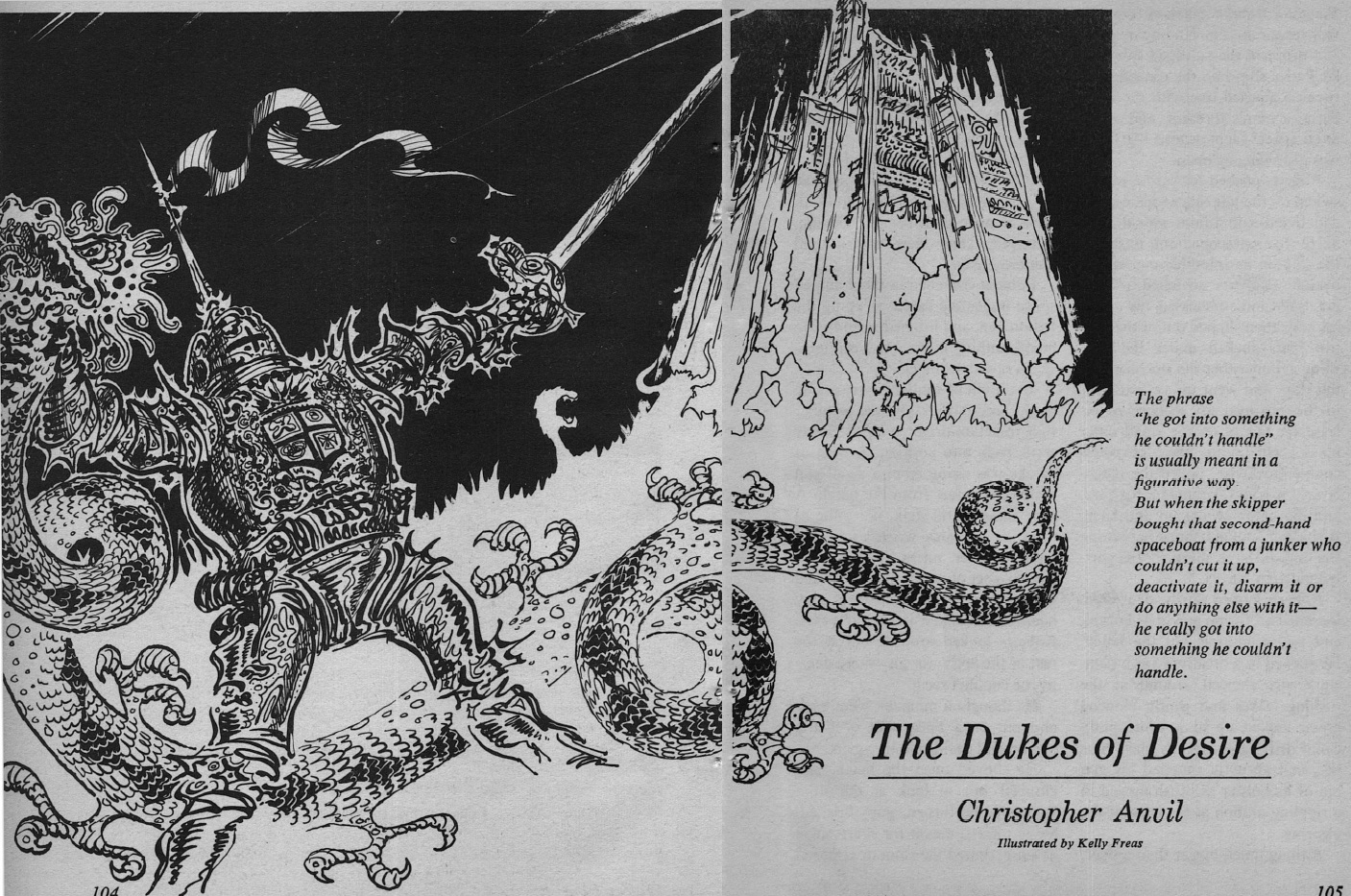

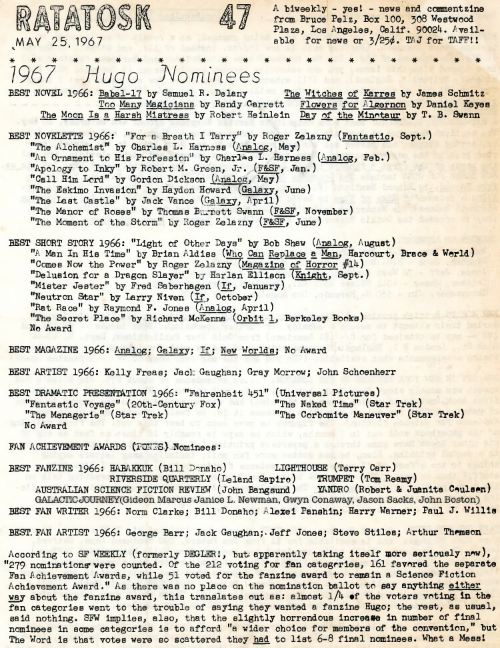
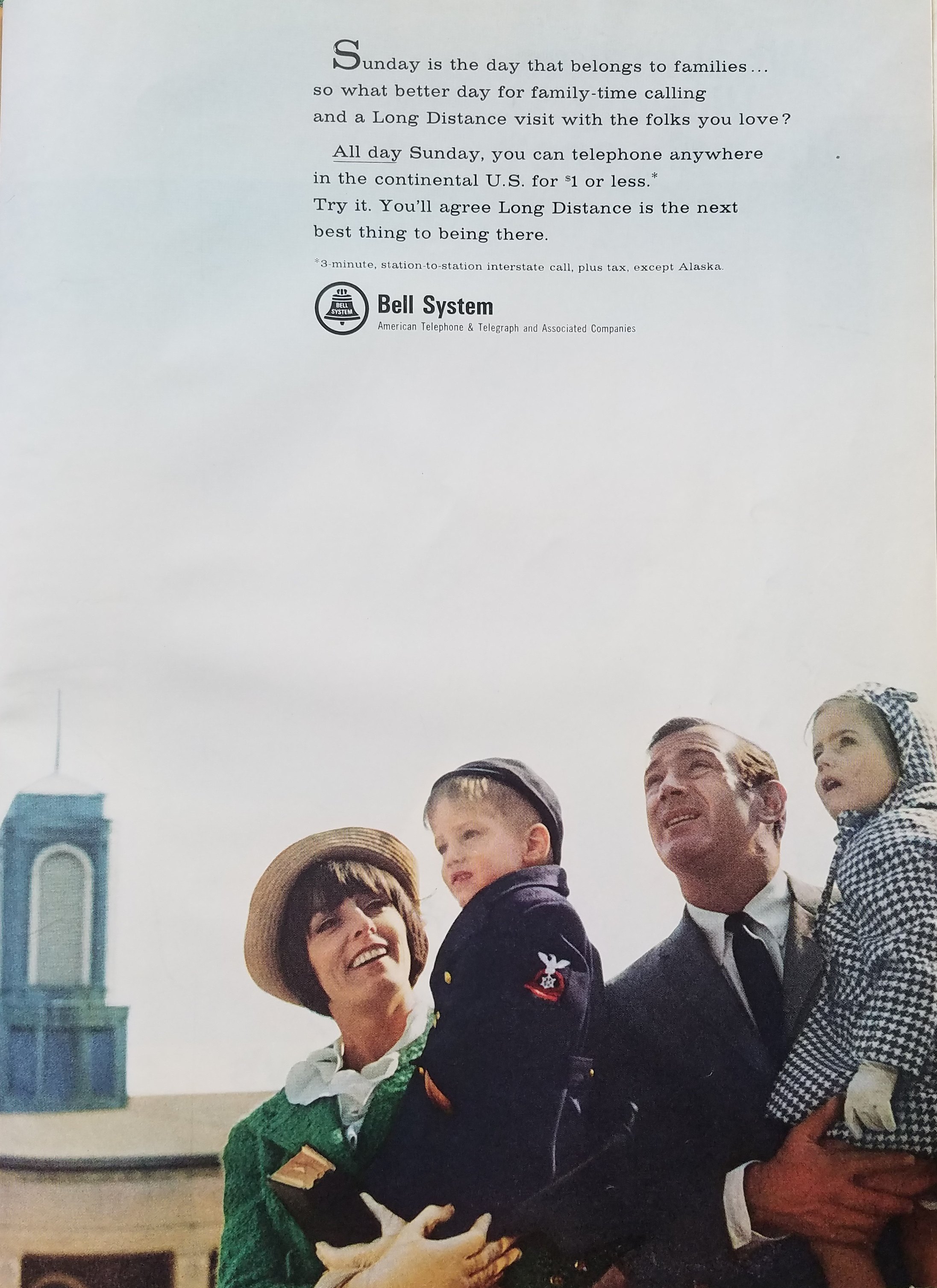
![[May 16, 1967] From the Sea to the Stars (May 1967 Galactoscope)](https://galacticjourney.org/wp-content/uploads/2022/05/670516covers-672x372.jpg)








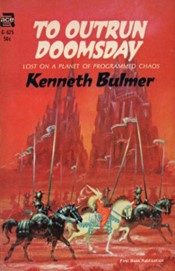
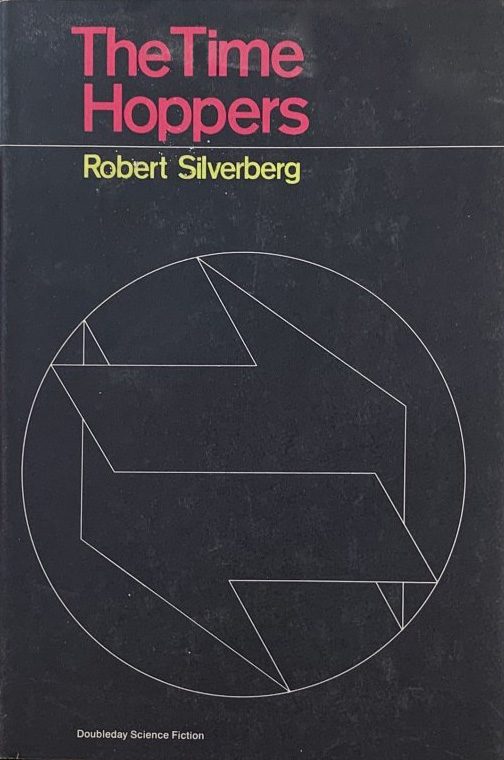

![[April 30, 1967] Strange New Worlds and Staid Old Ones (May 1967 <i>Analog</i>)](https://galacticjourney.org/wp-content/uploads/2022/04/670430cover-672x372.jpg)
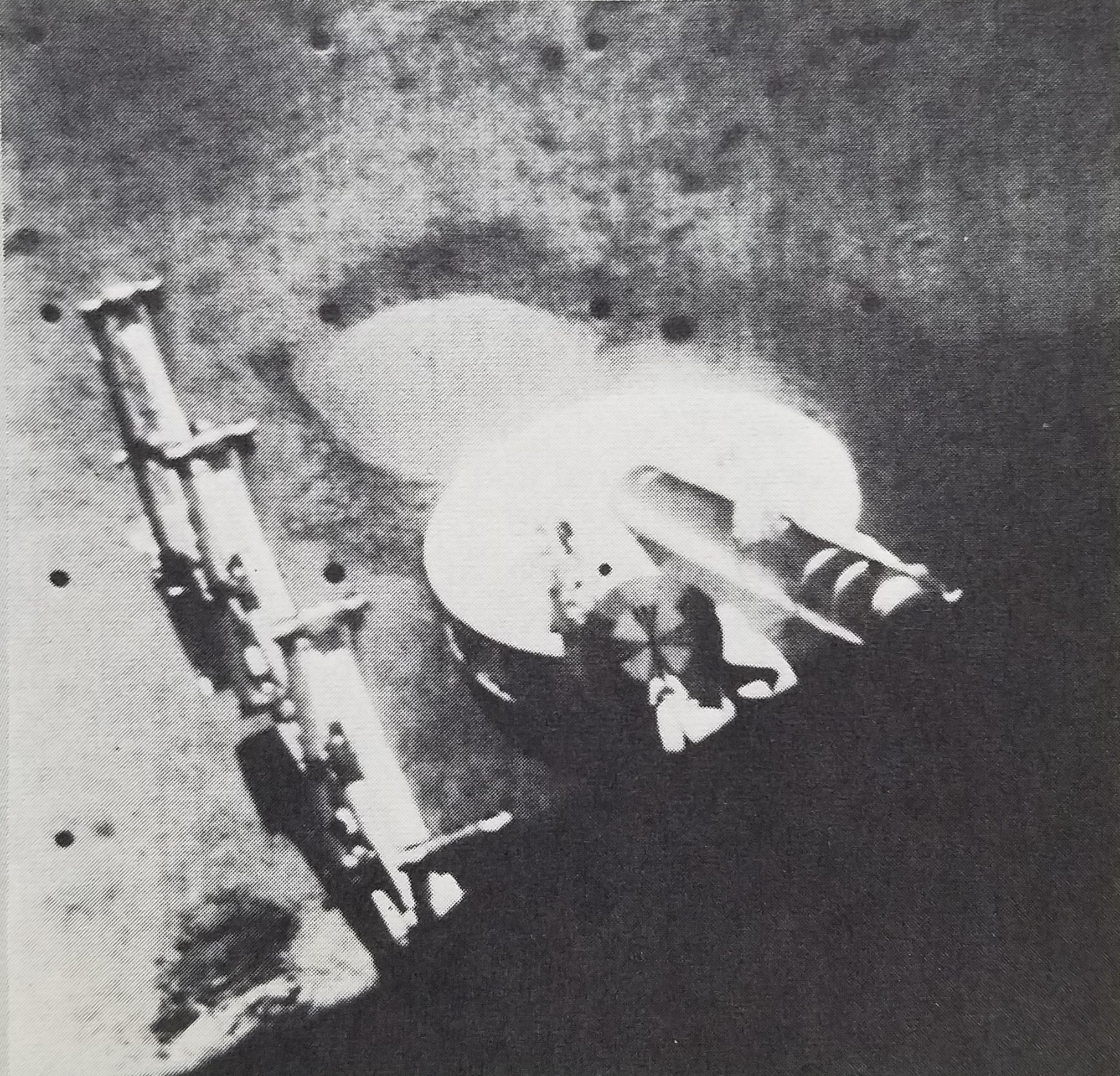
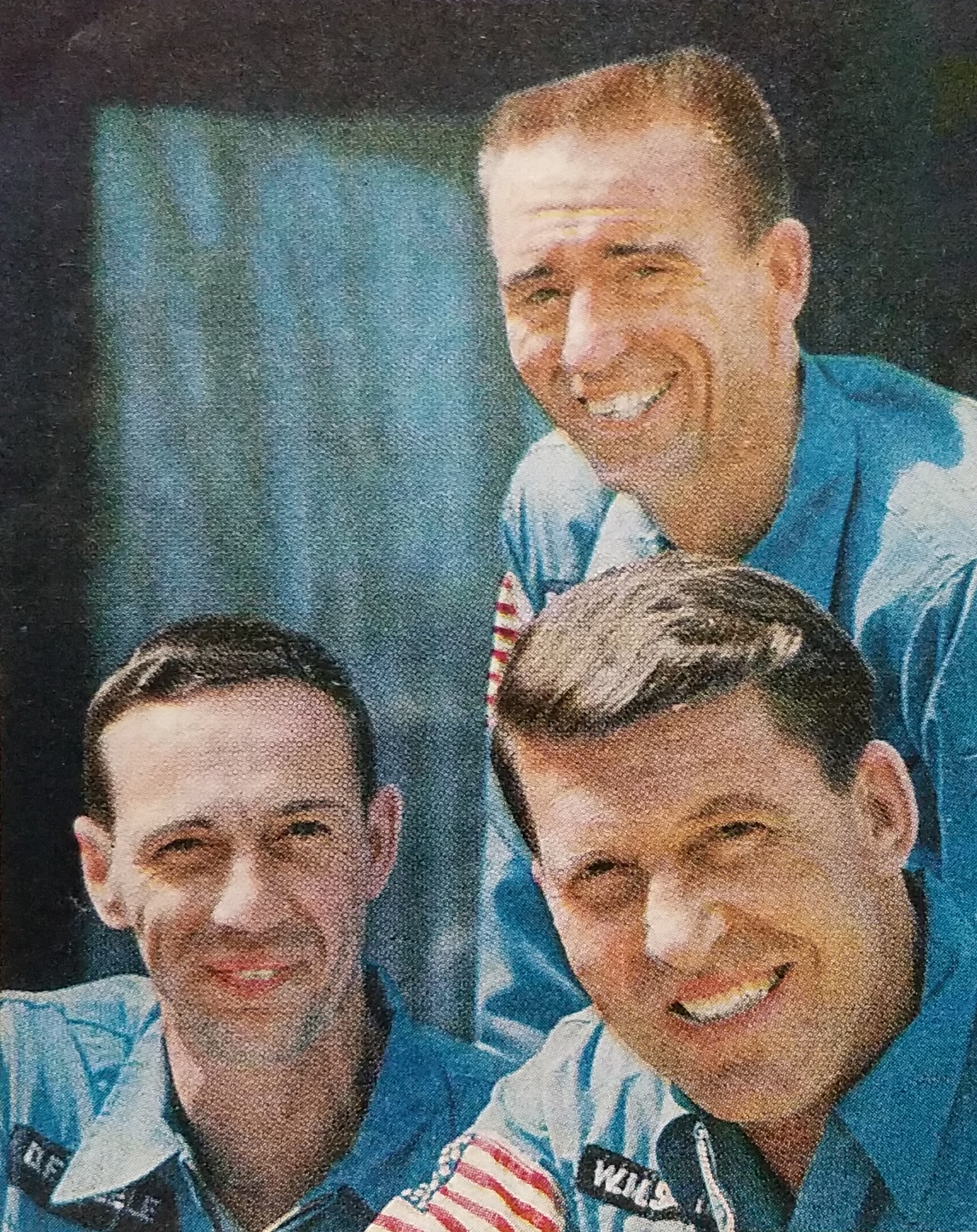
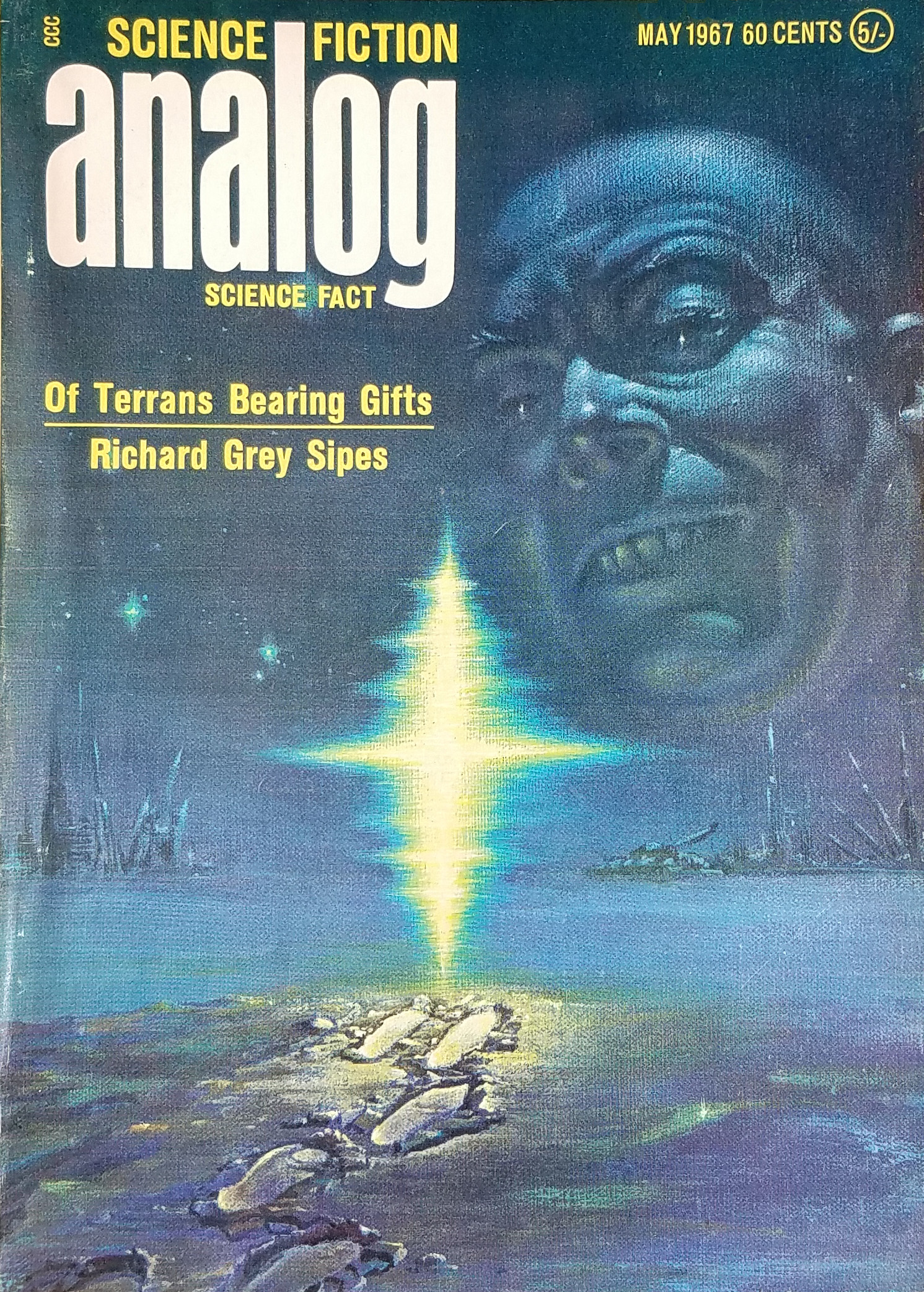

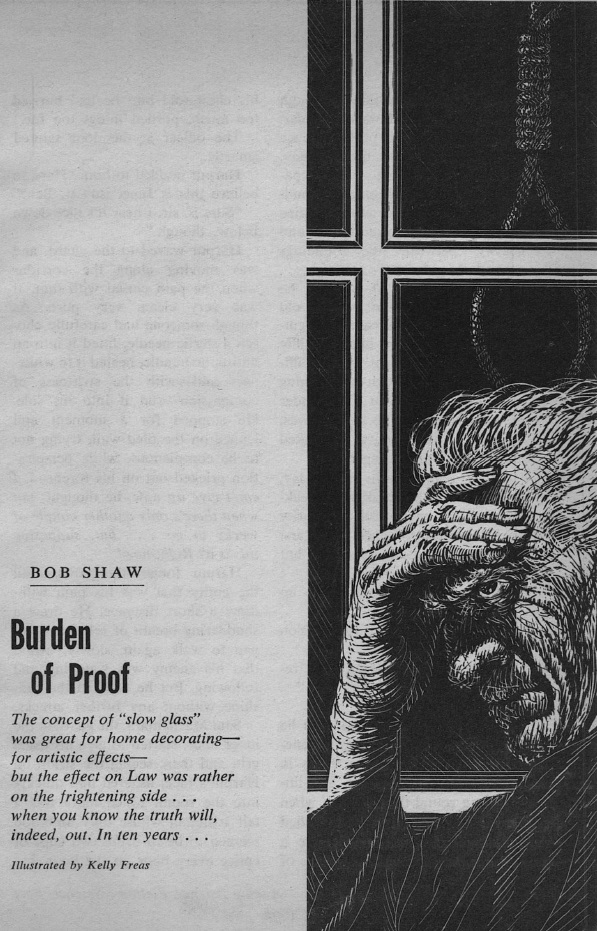
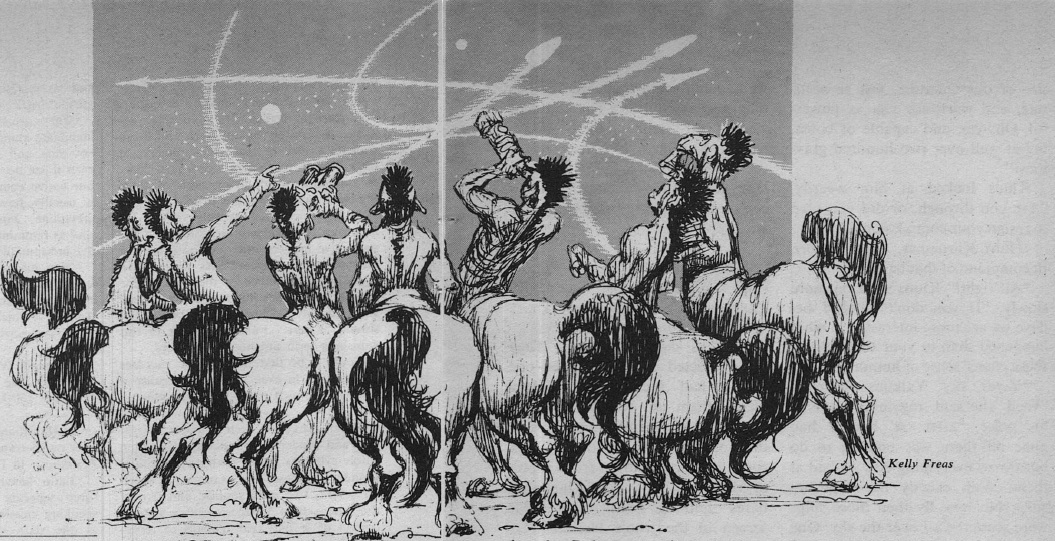
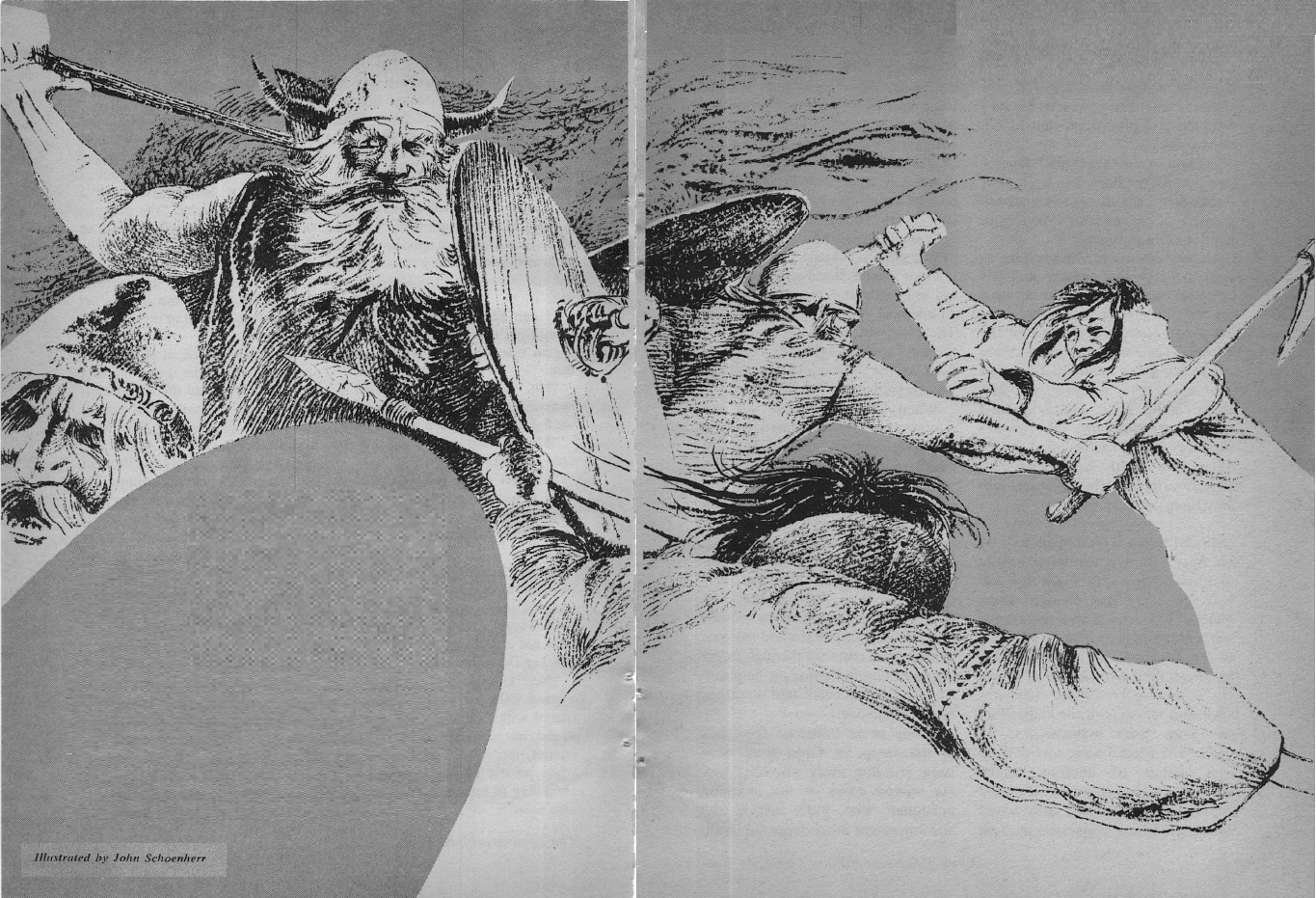
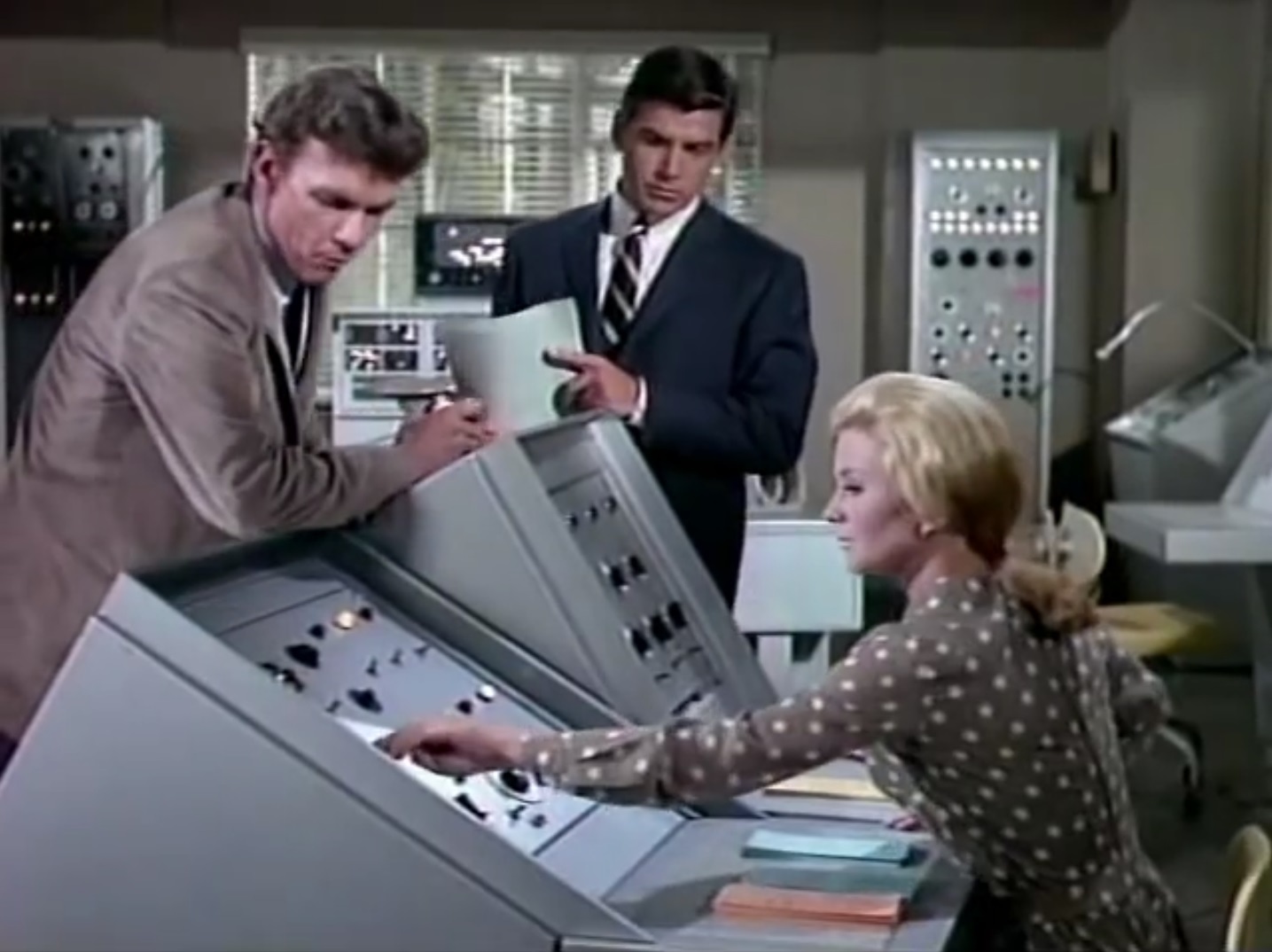
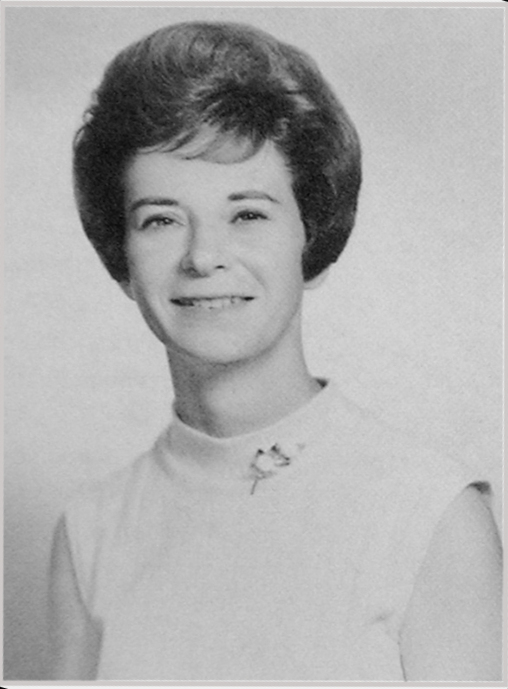
![[March 28, 1967] At last, a drop to drink (April 1967 <i>Analog</i>)](https://galacticjourney.org/wp-content/uploads/2022/03/670328cover-649x372.jpg)
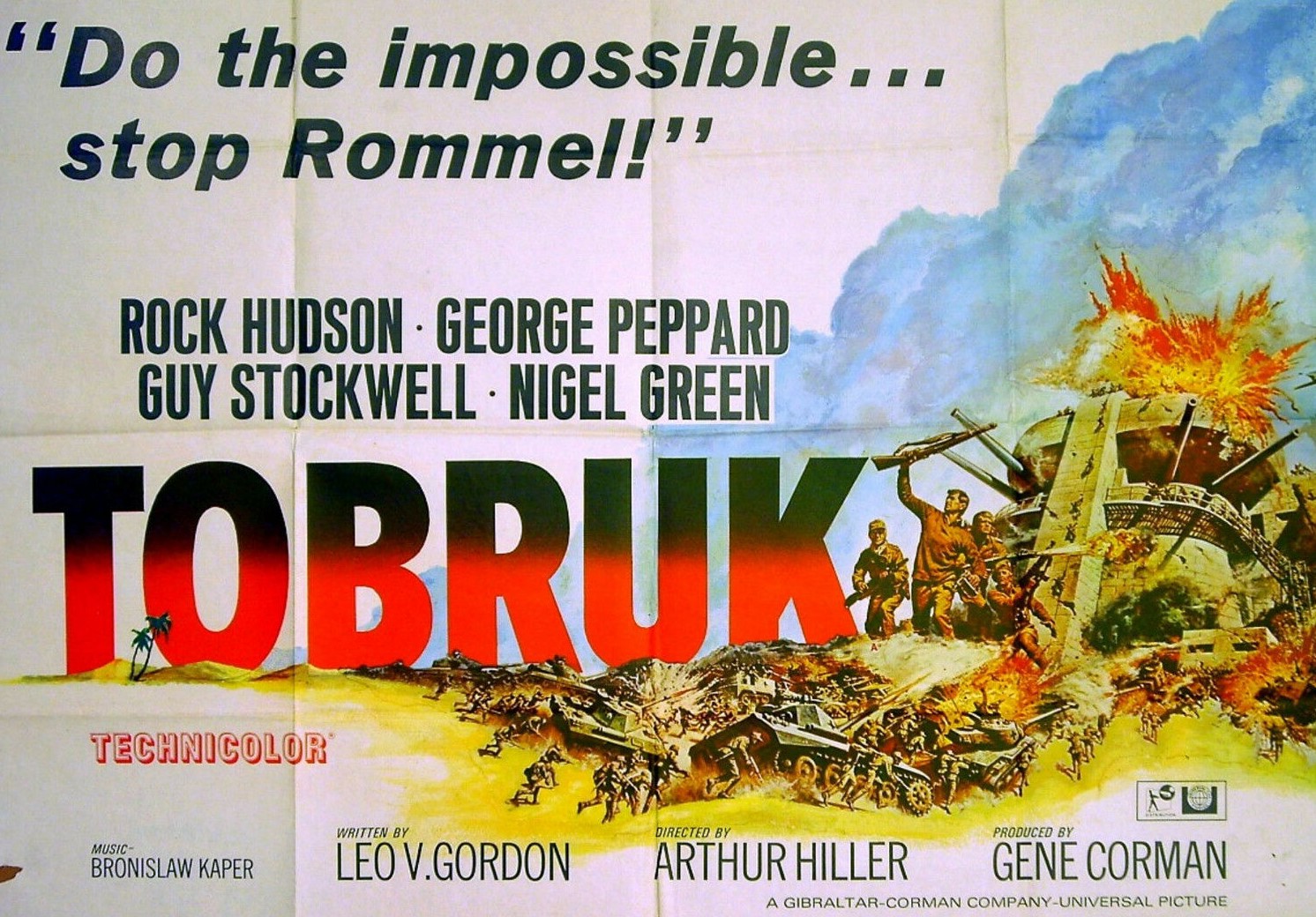
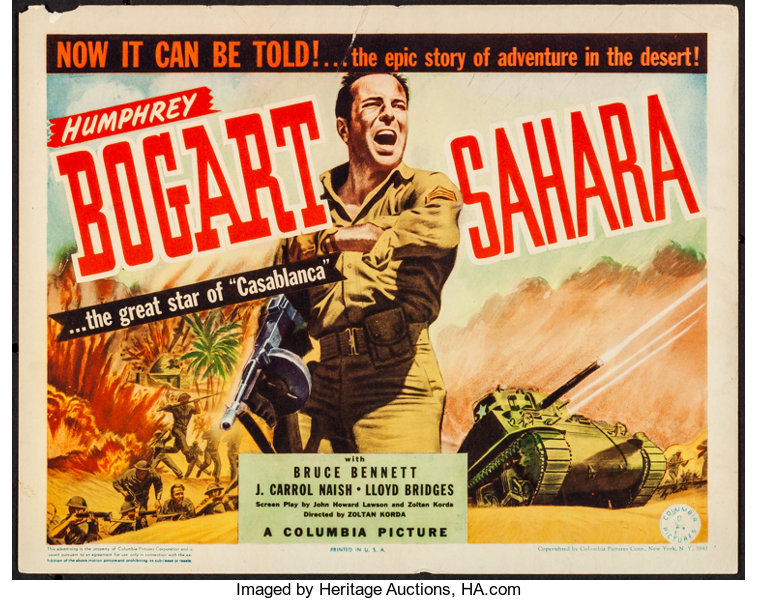
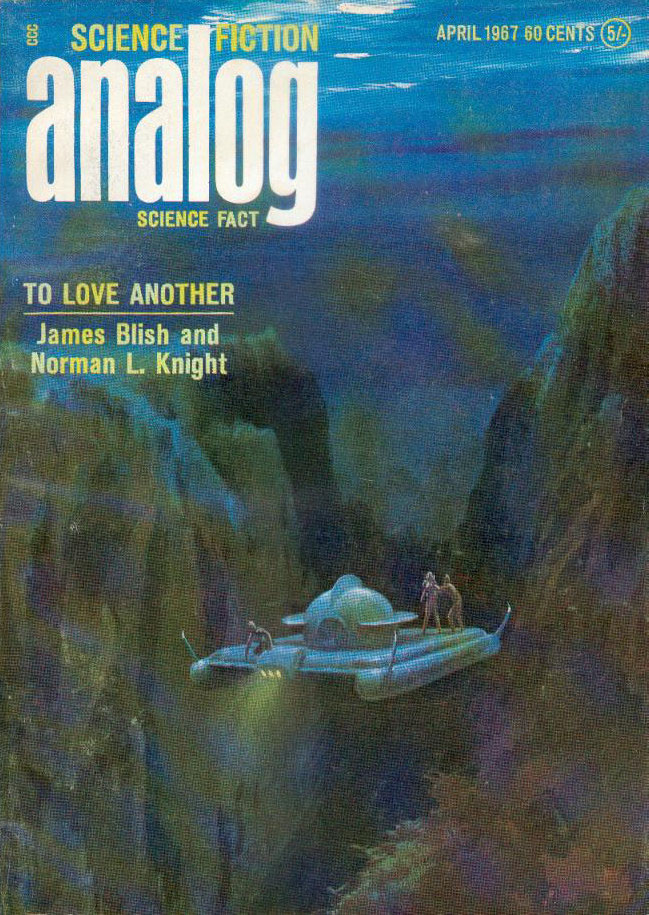
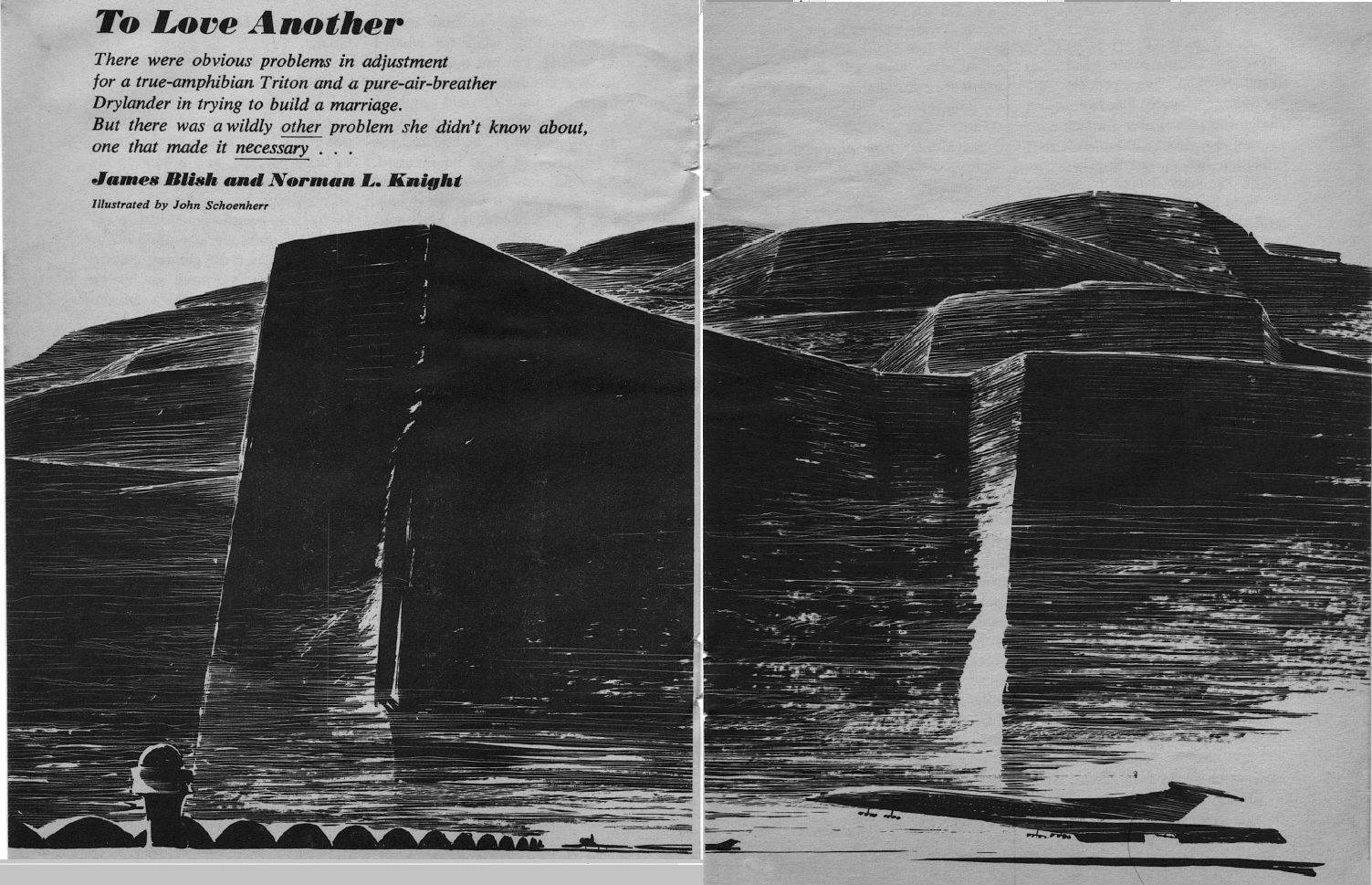

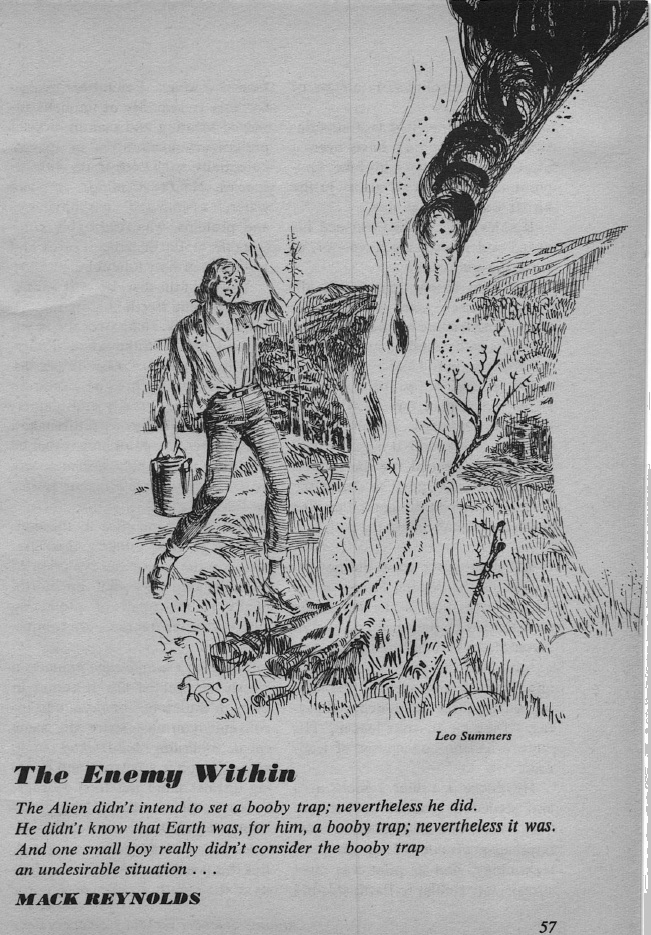
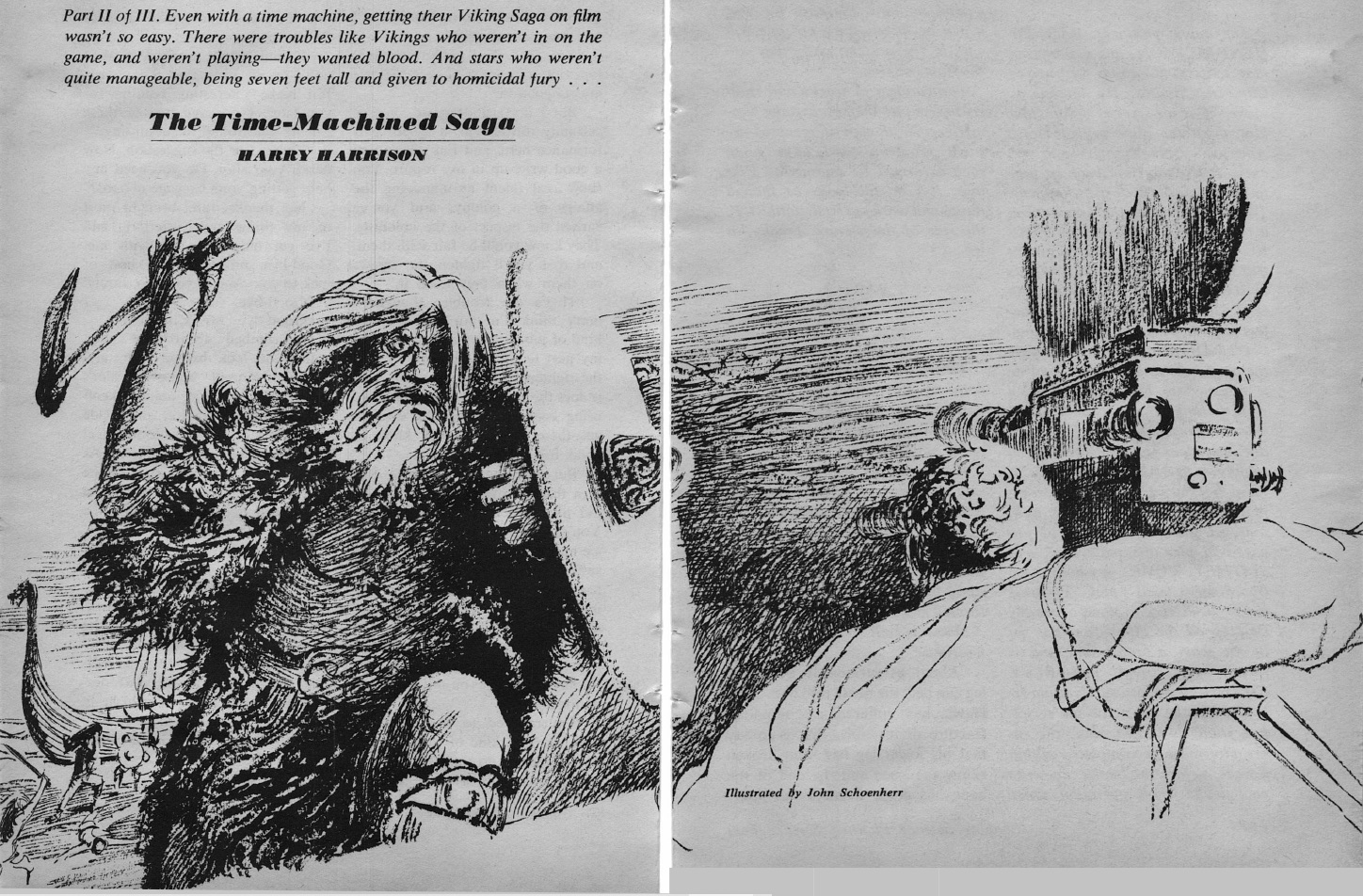
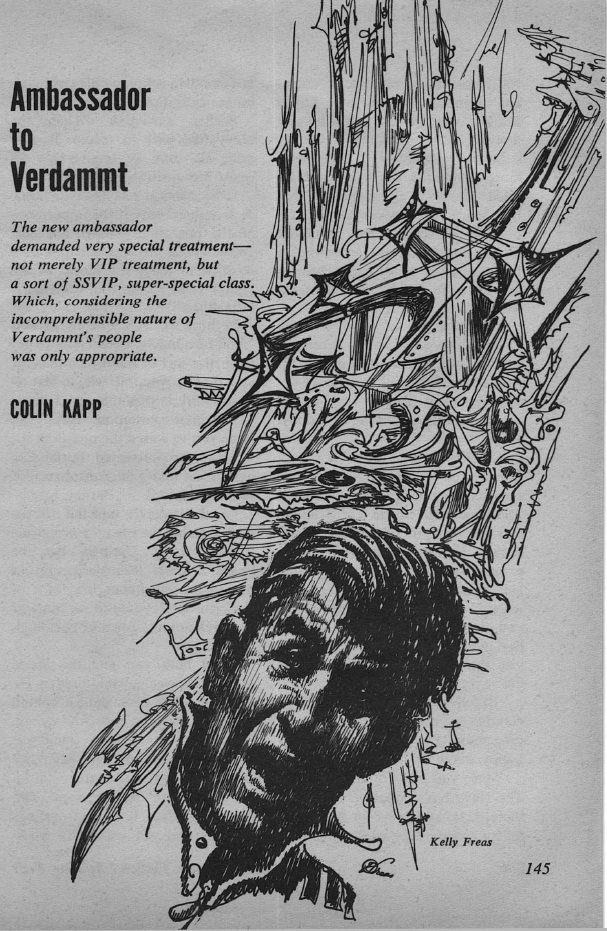

![[February 28, 1967] The Big Stall (March 1967 <i>Analog</i>)](https://galacticjourney.org/wp-content/uploads/2022/02/670228cover-672x372.jpg)
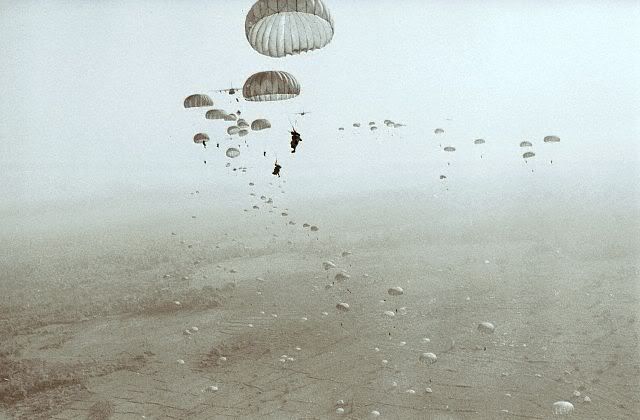

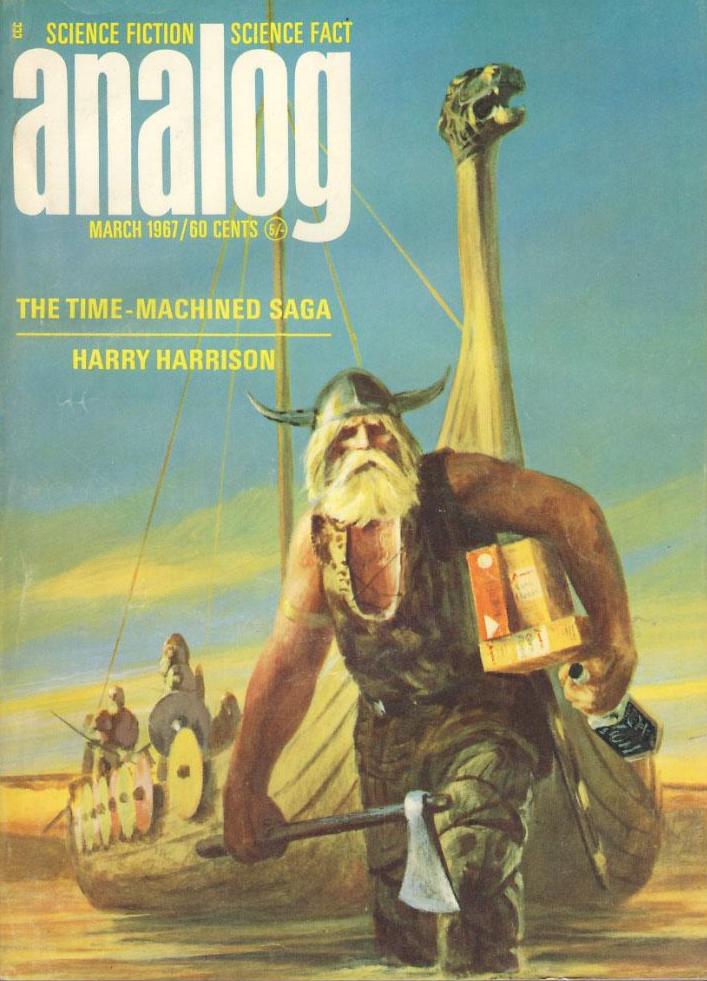
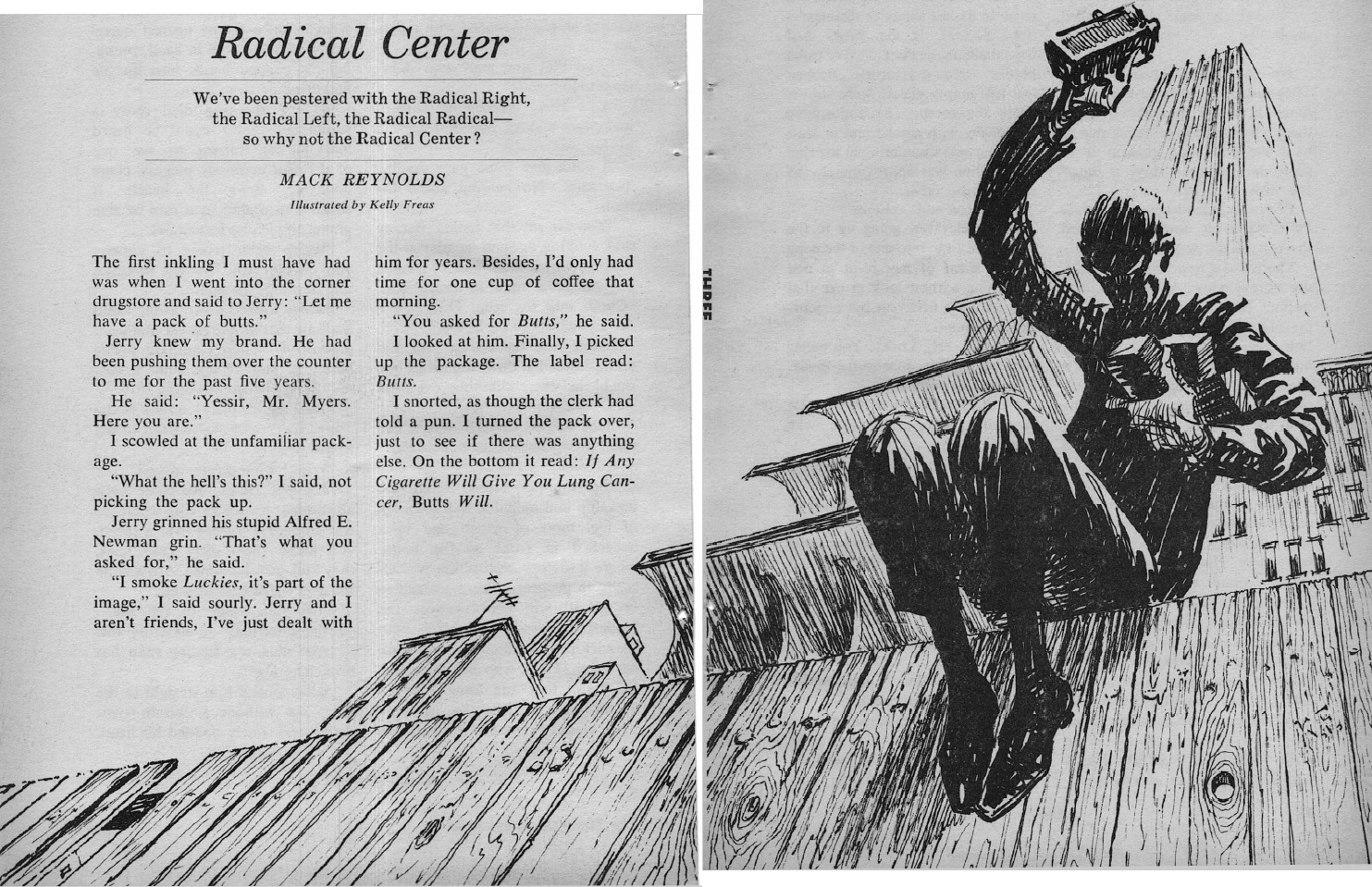
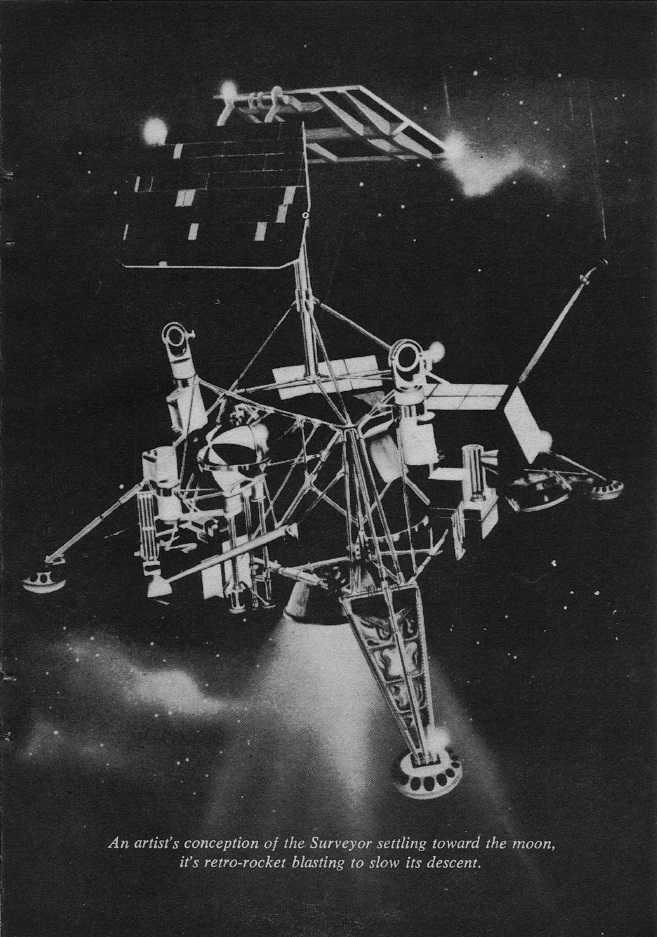
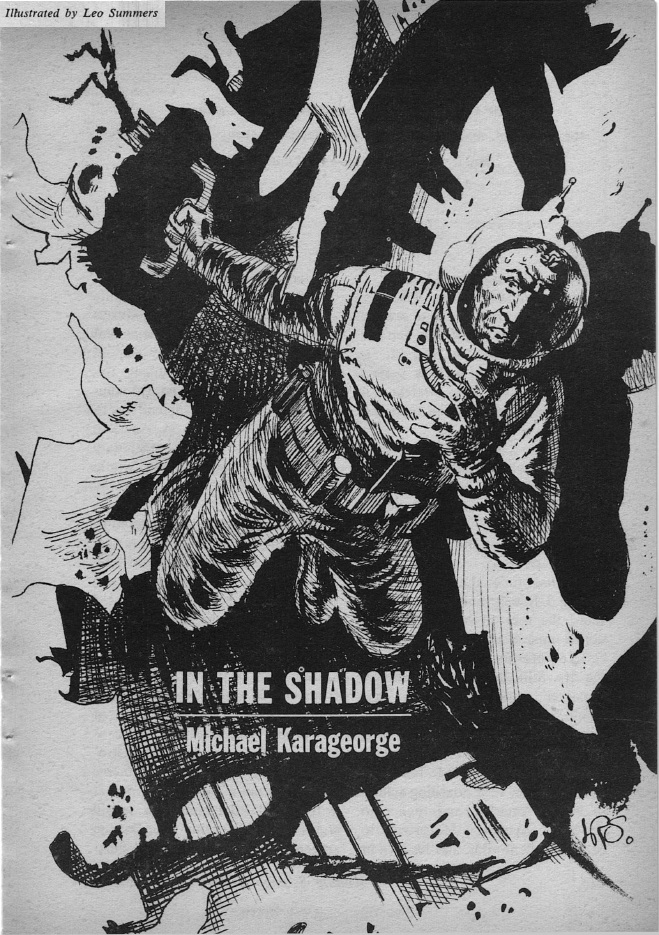
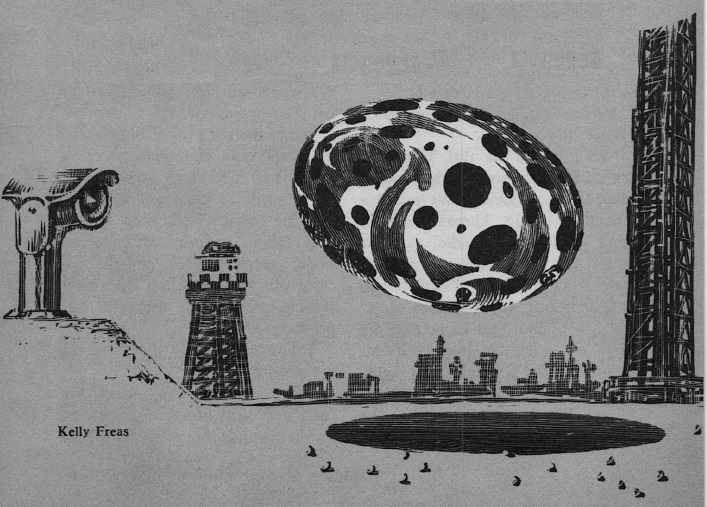
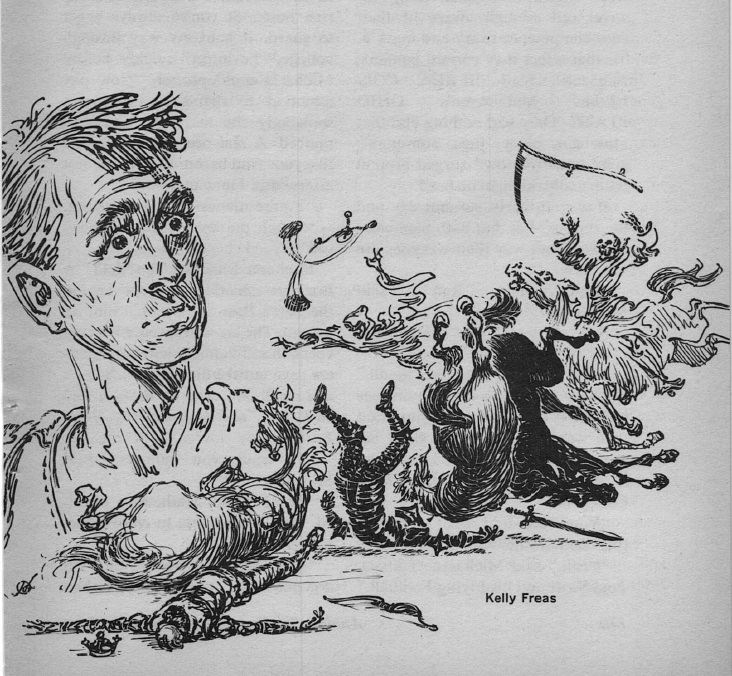

![[October 31, 1966] Respite from the horror (November 1966 <i>Analog Science Fiction</i>)](https://galacticjourney.org/wp-content/uploads/2021/10/661031cover-355x372.jpg)










![[September 30, 1966] Return to Base (October 1966 <i>Analog</i>)](https://galacticjourney.org/wp-content/uploads/2021/09/660930cover-672x372.jpg)











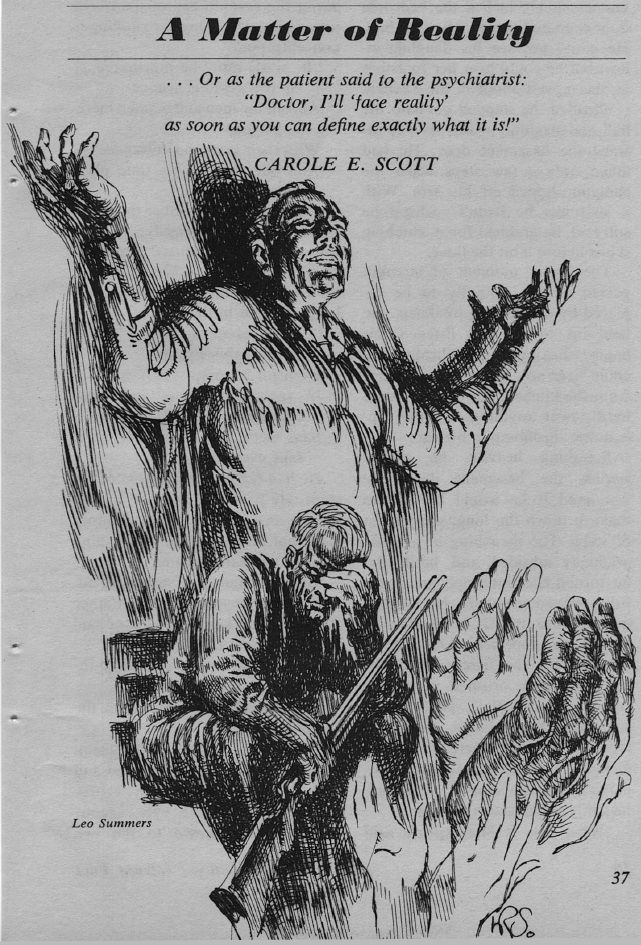







![[July 31, 1966] Dimmed lights (August 1966 <i>Analog</i>)](https://galacticjourney.org/wp-content/uploads/2021/07/660731cover-672x372.jpg)
